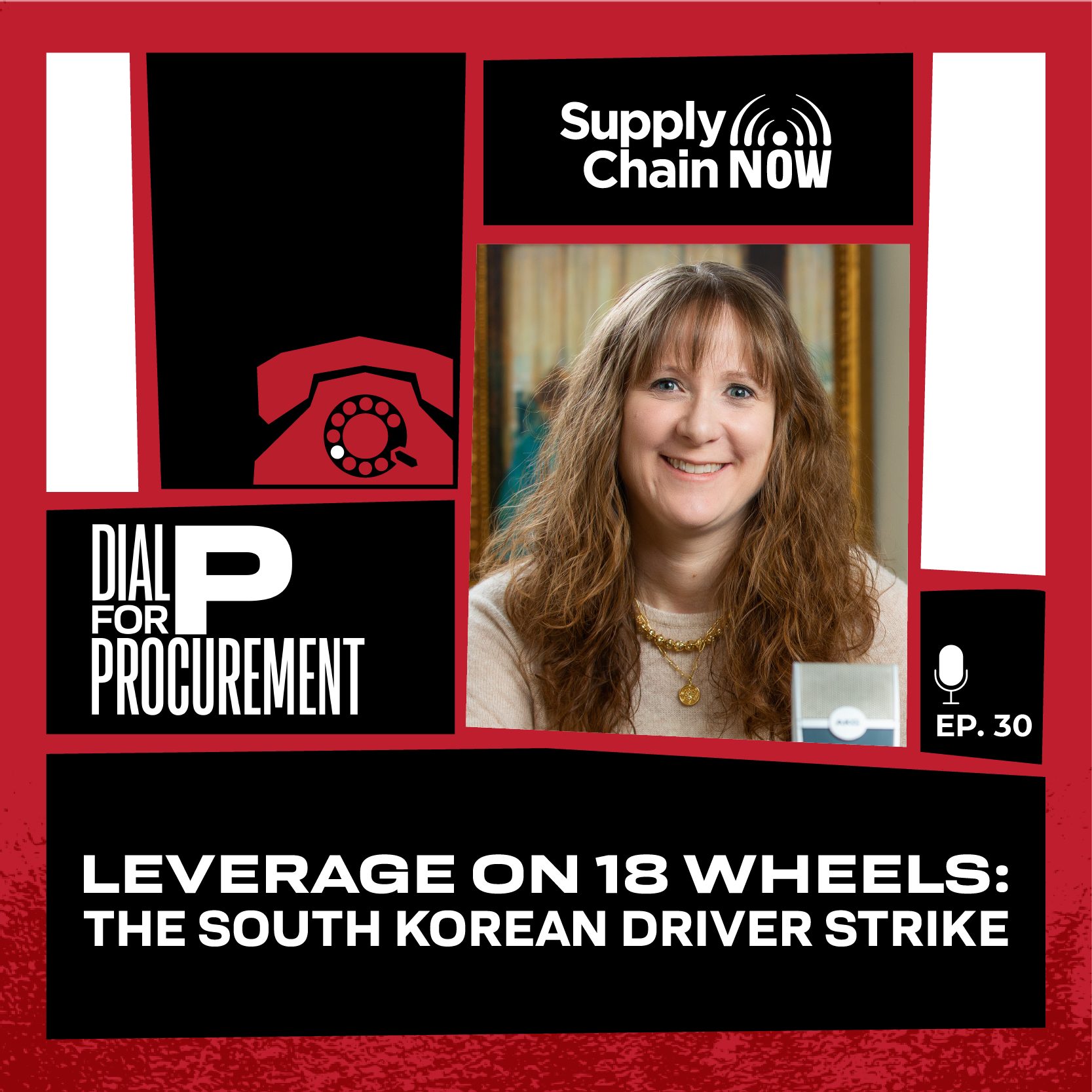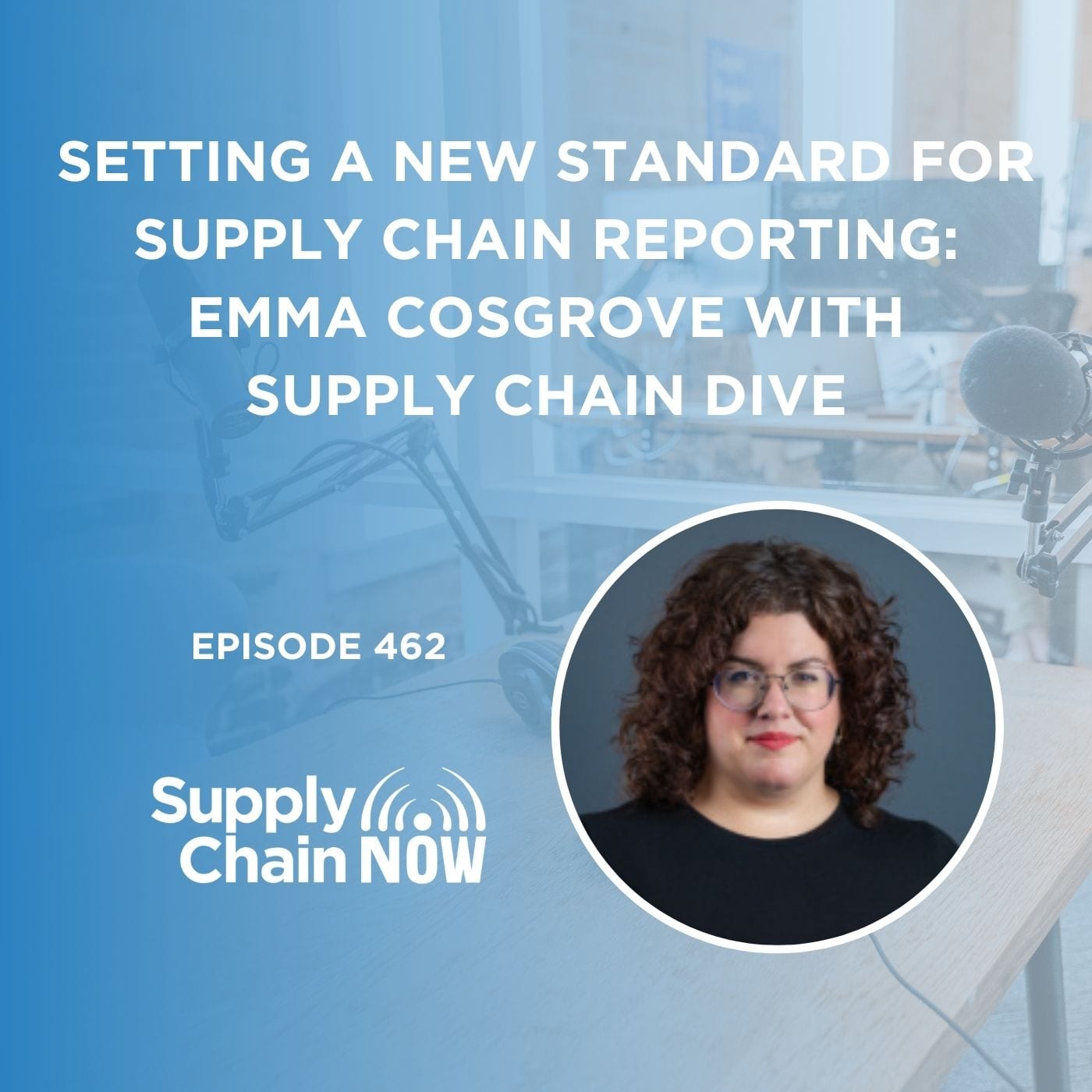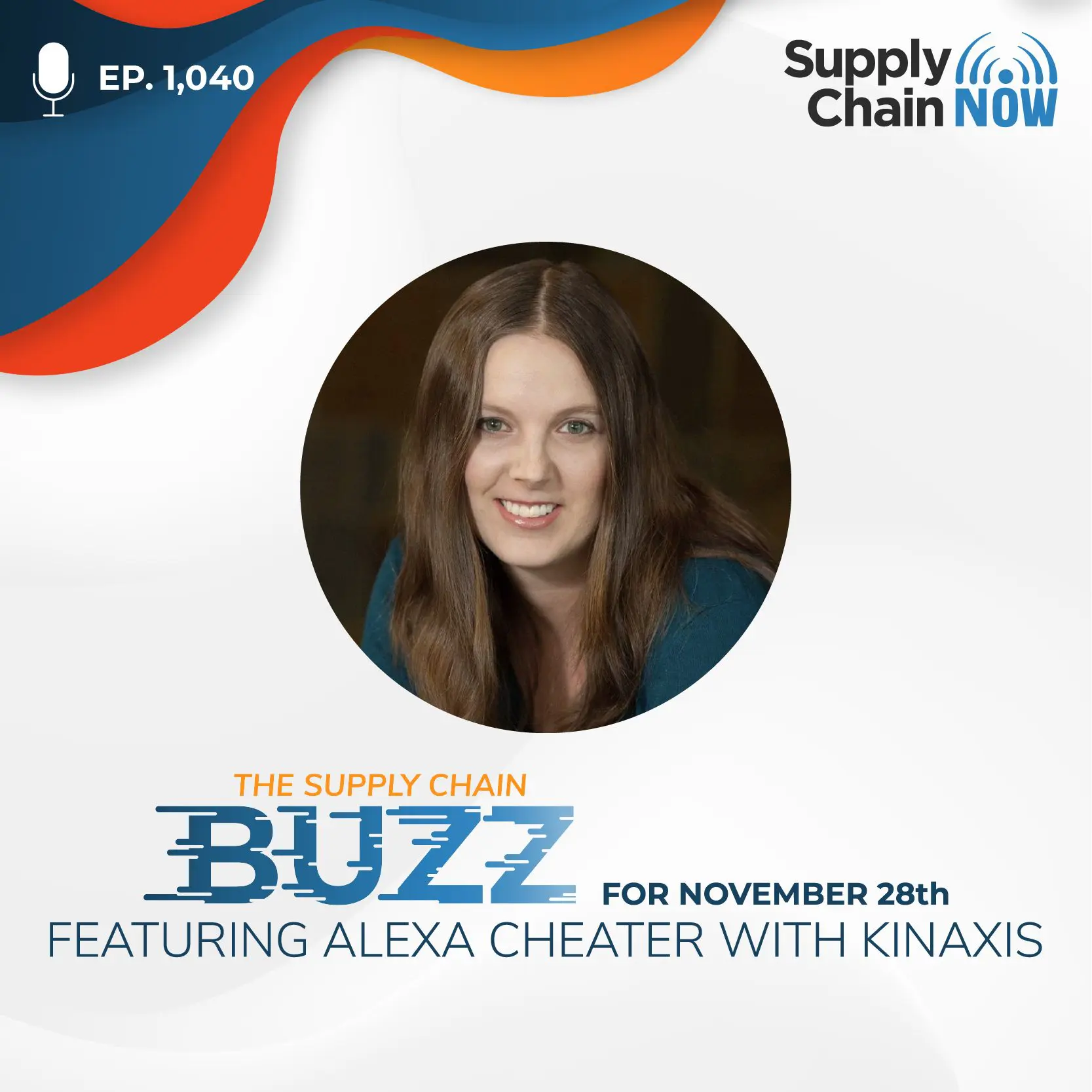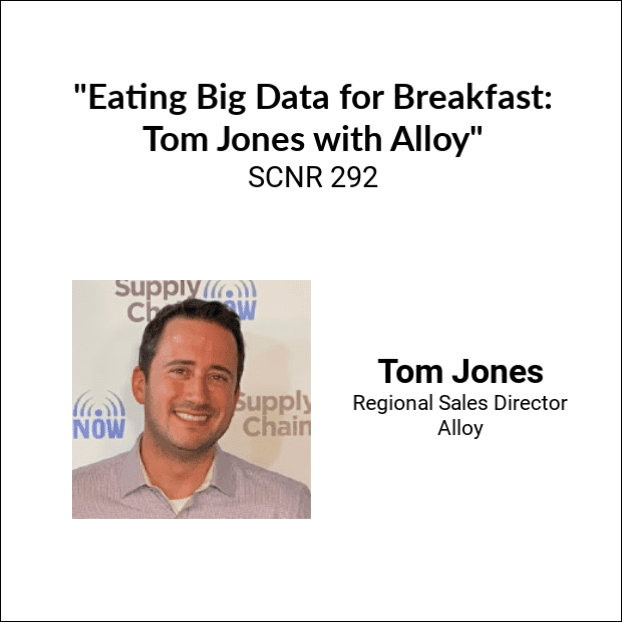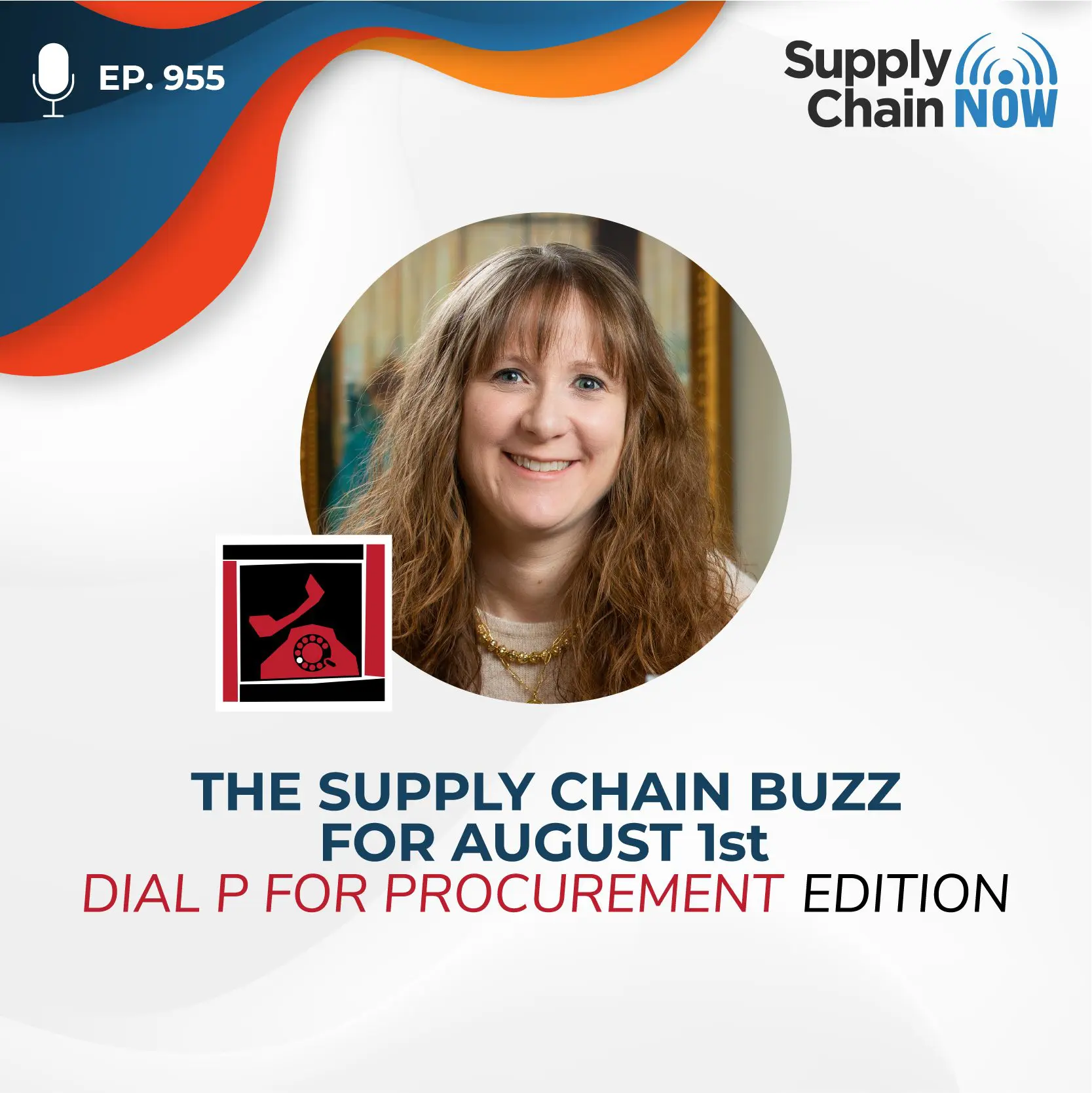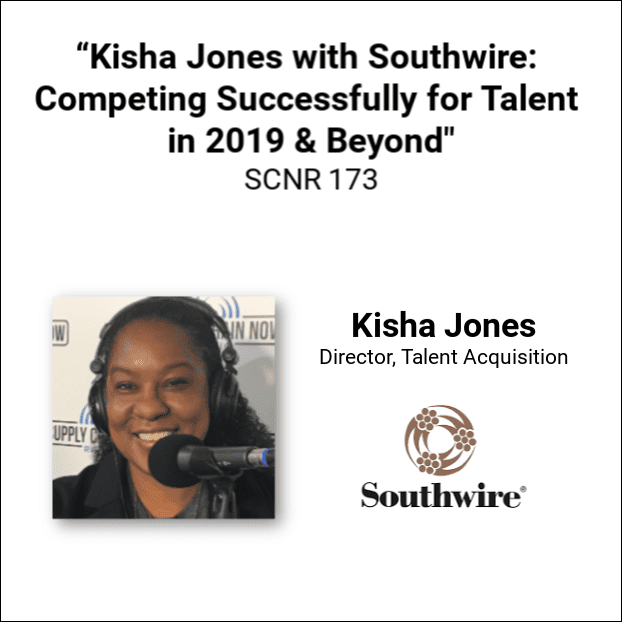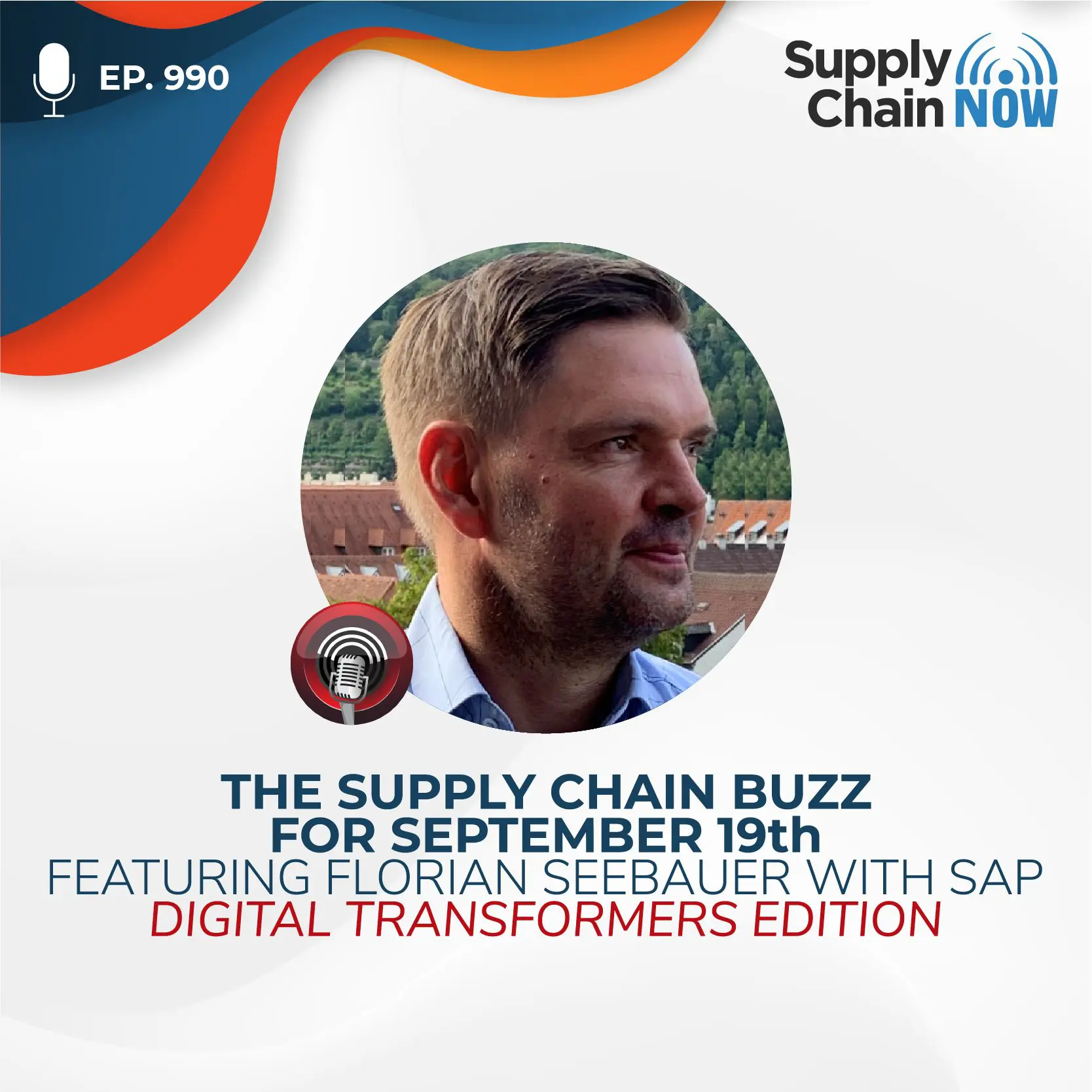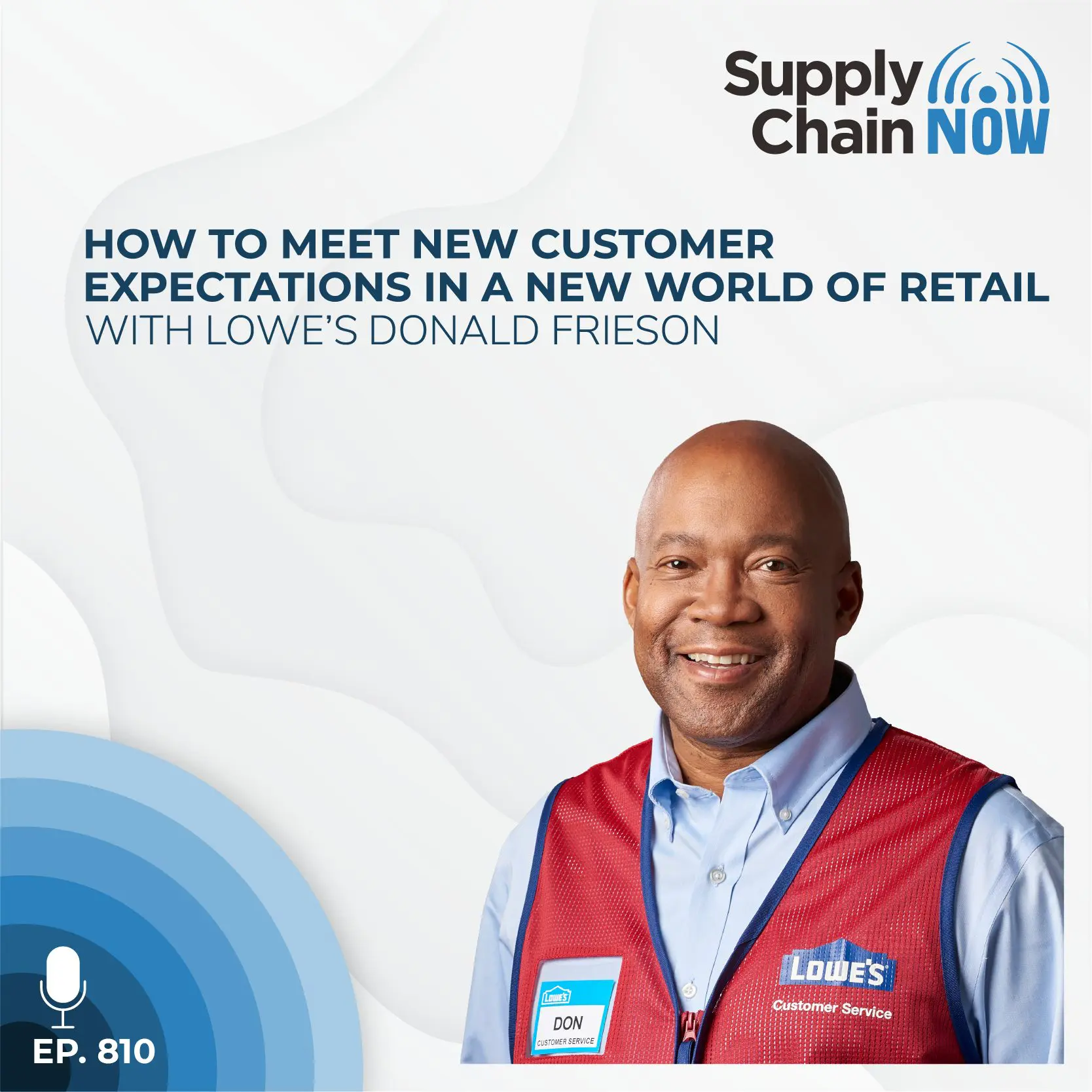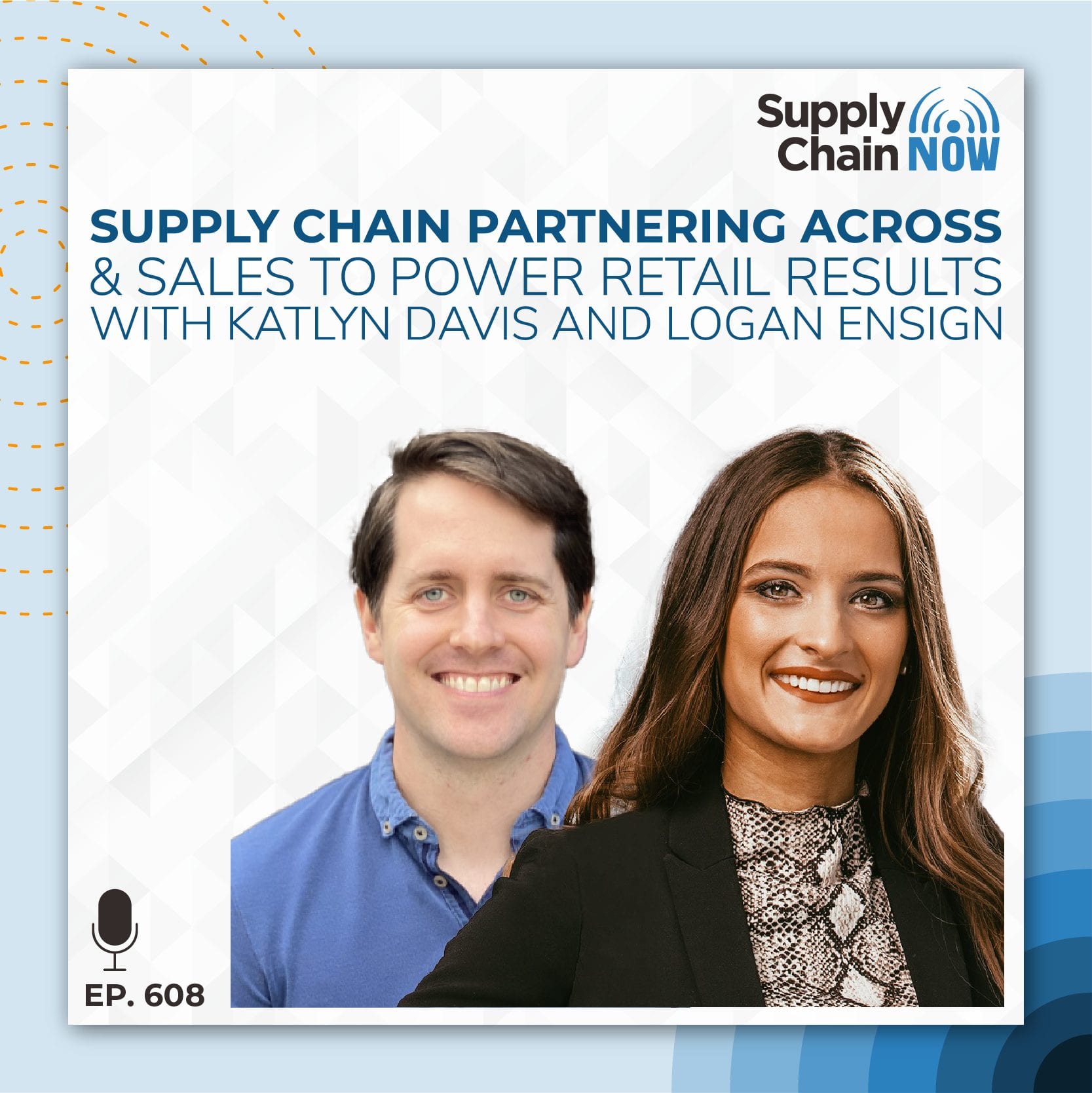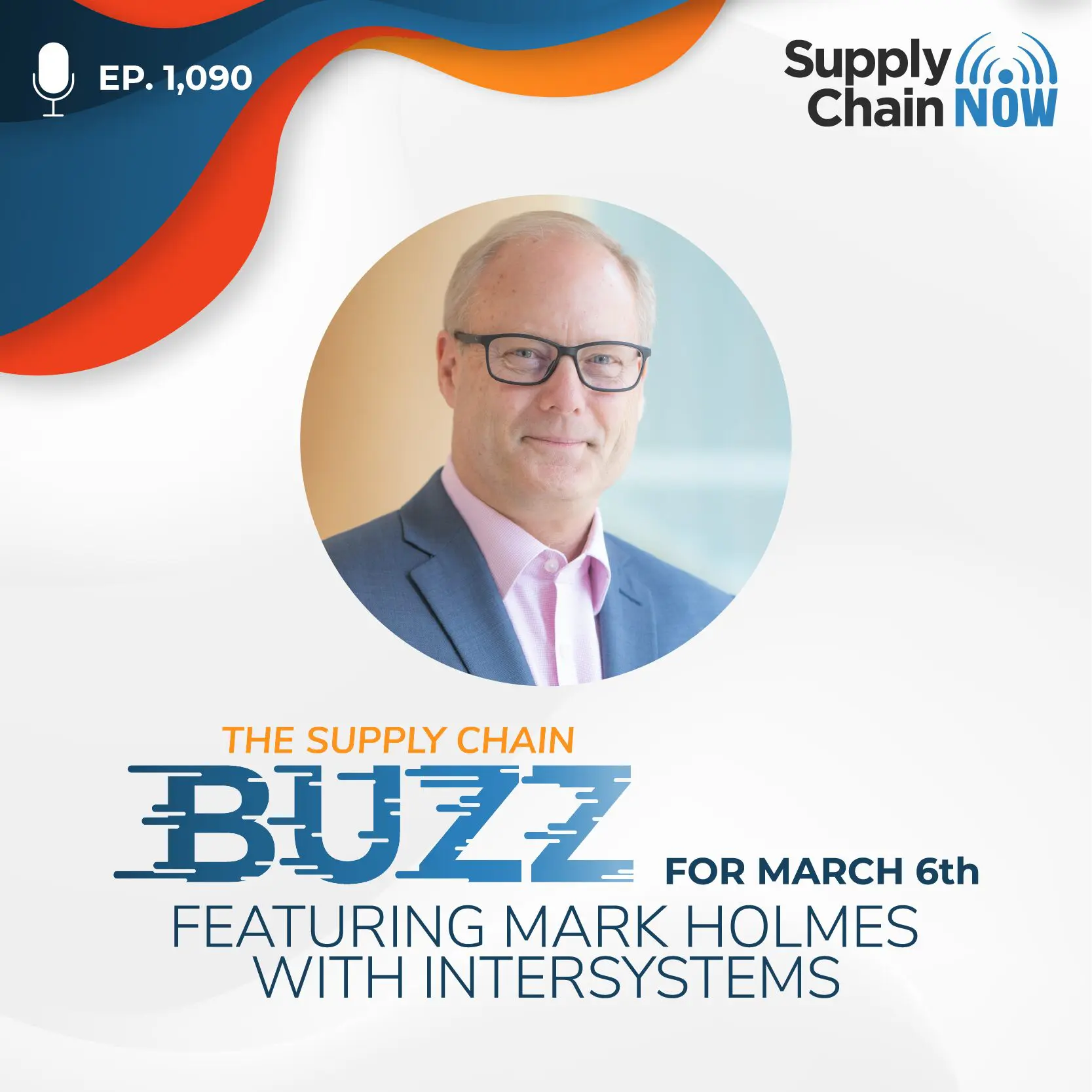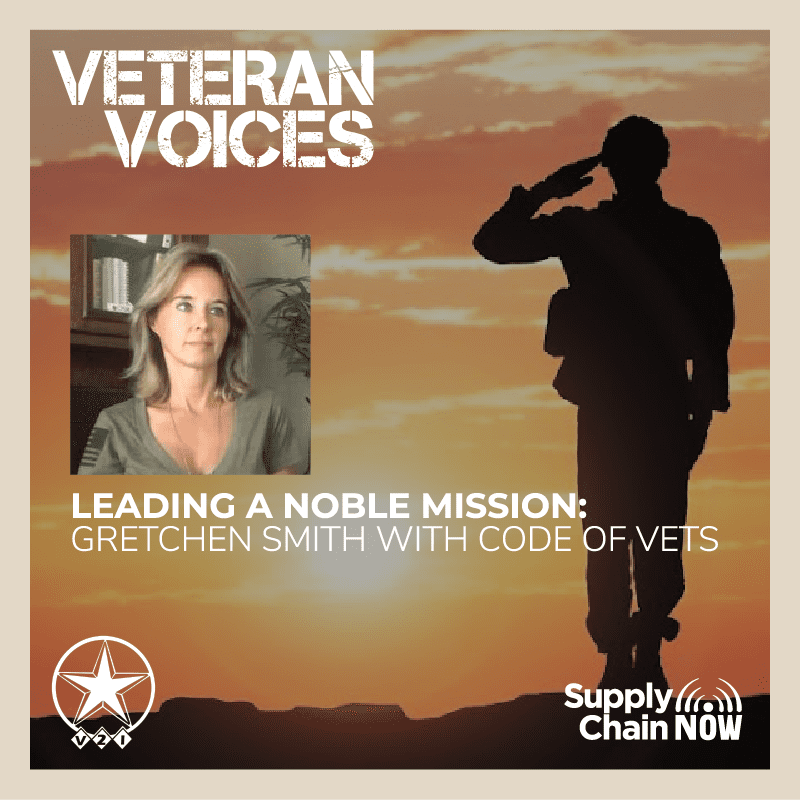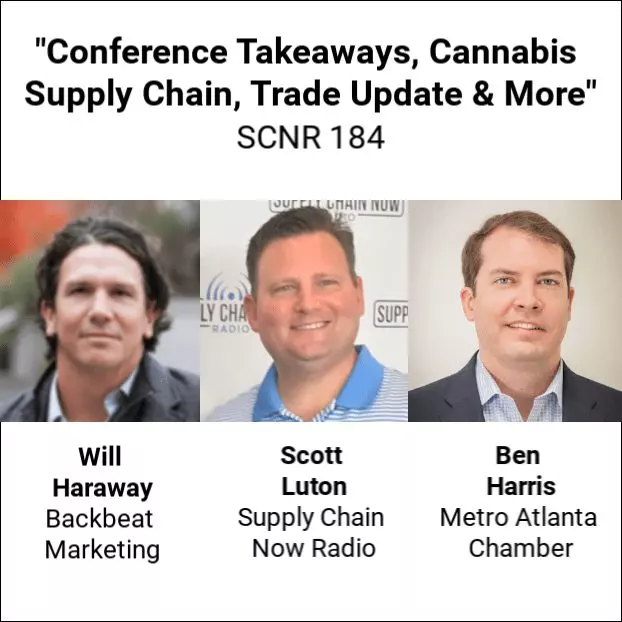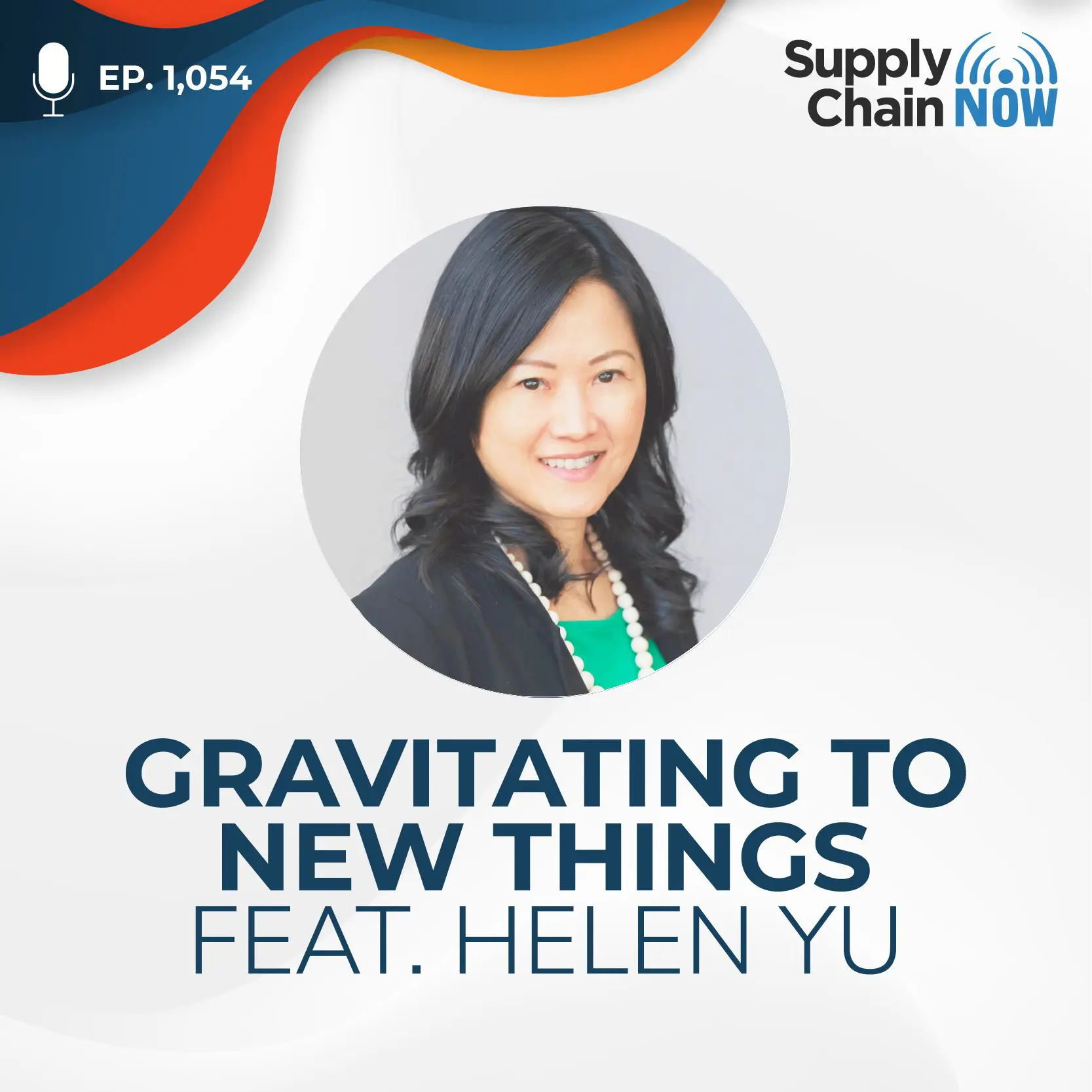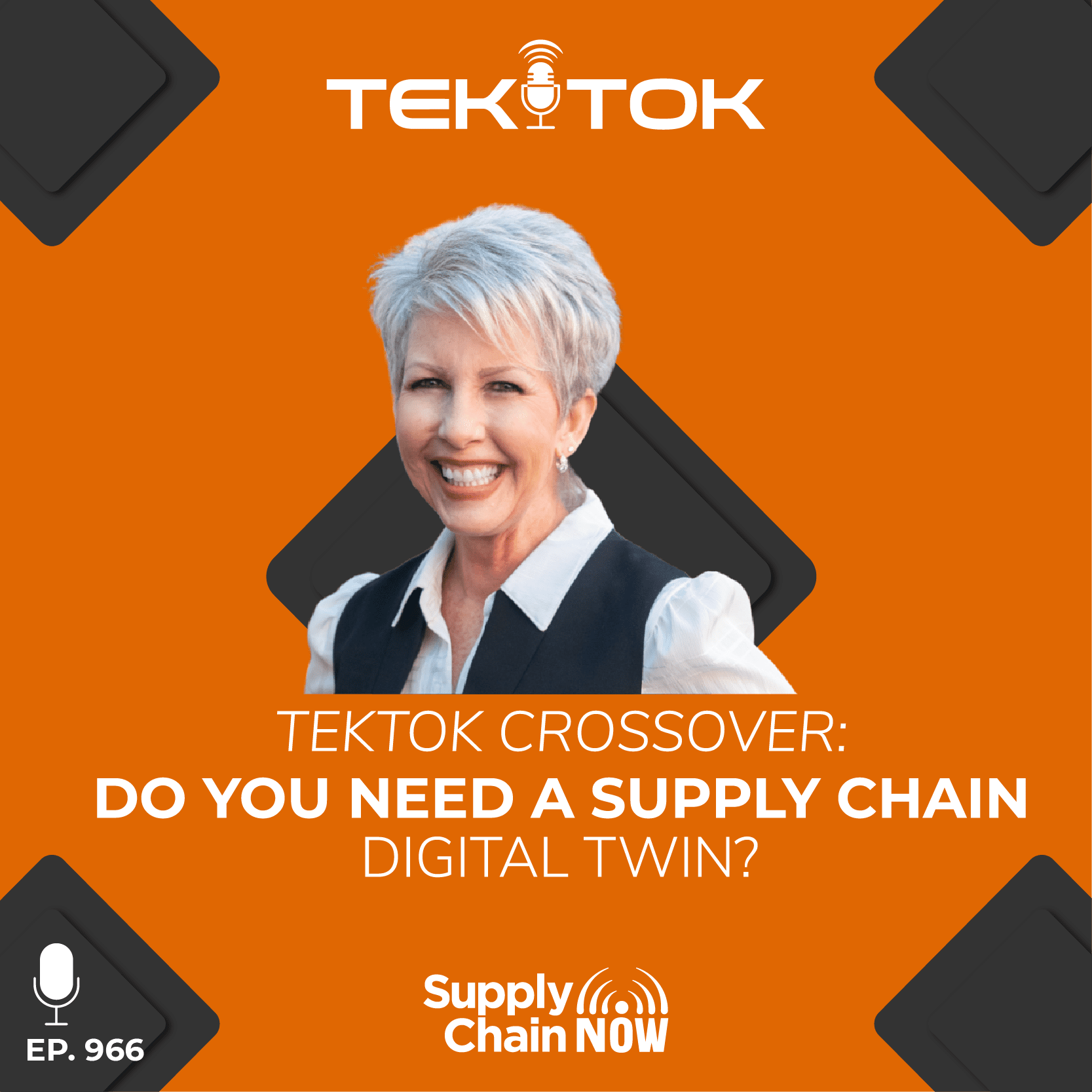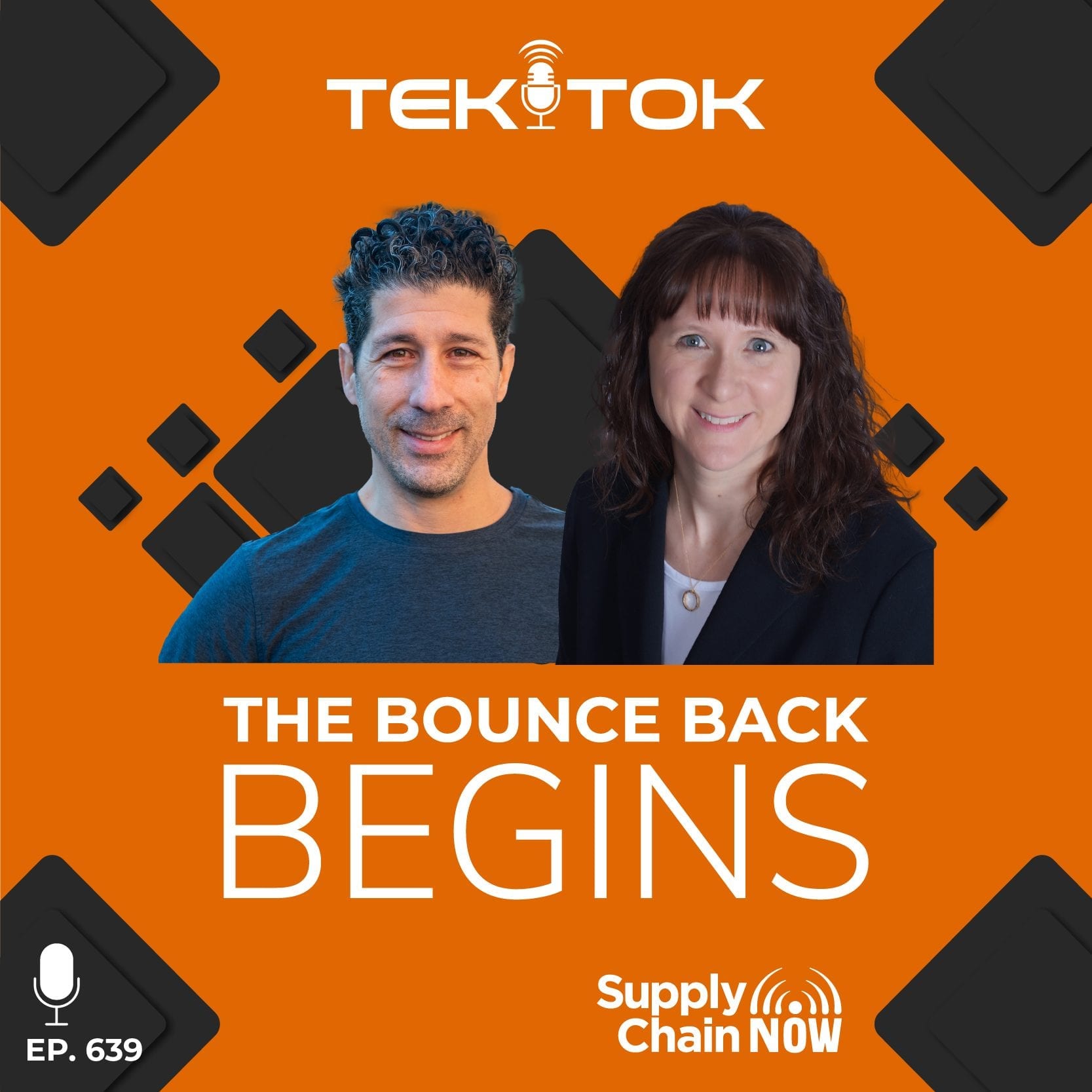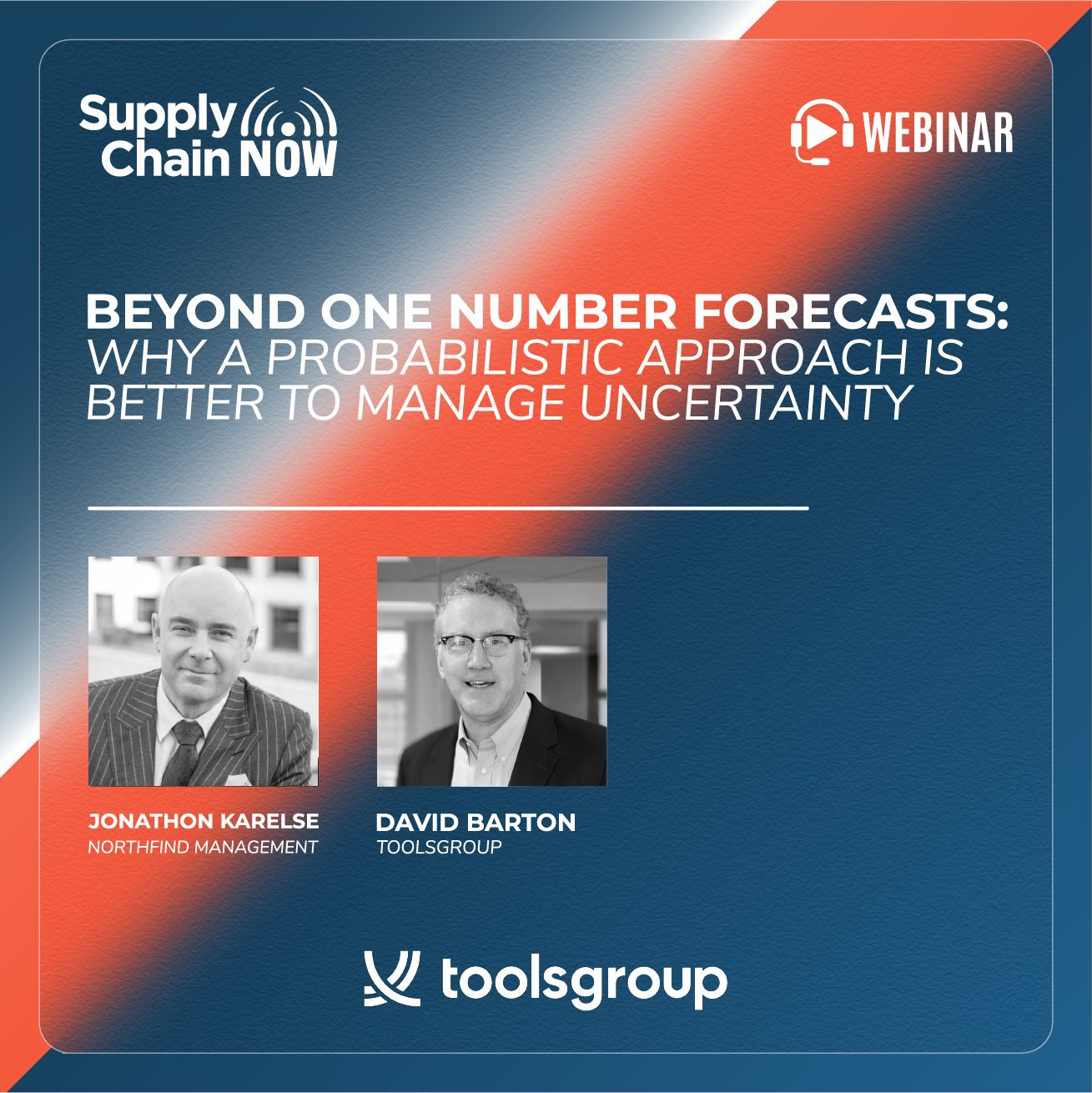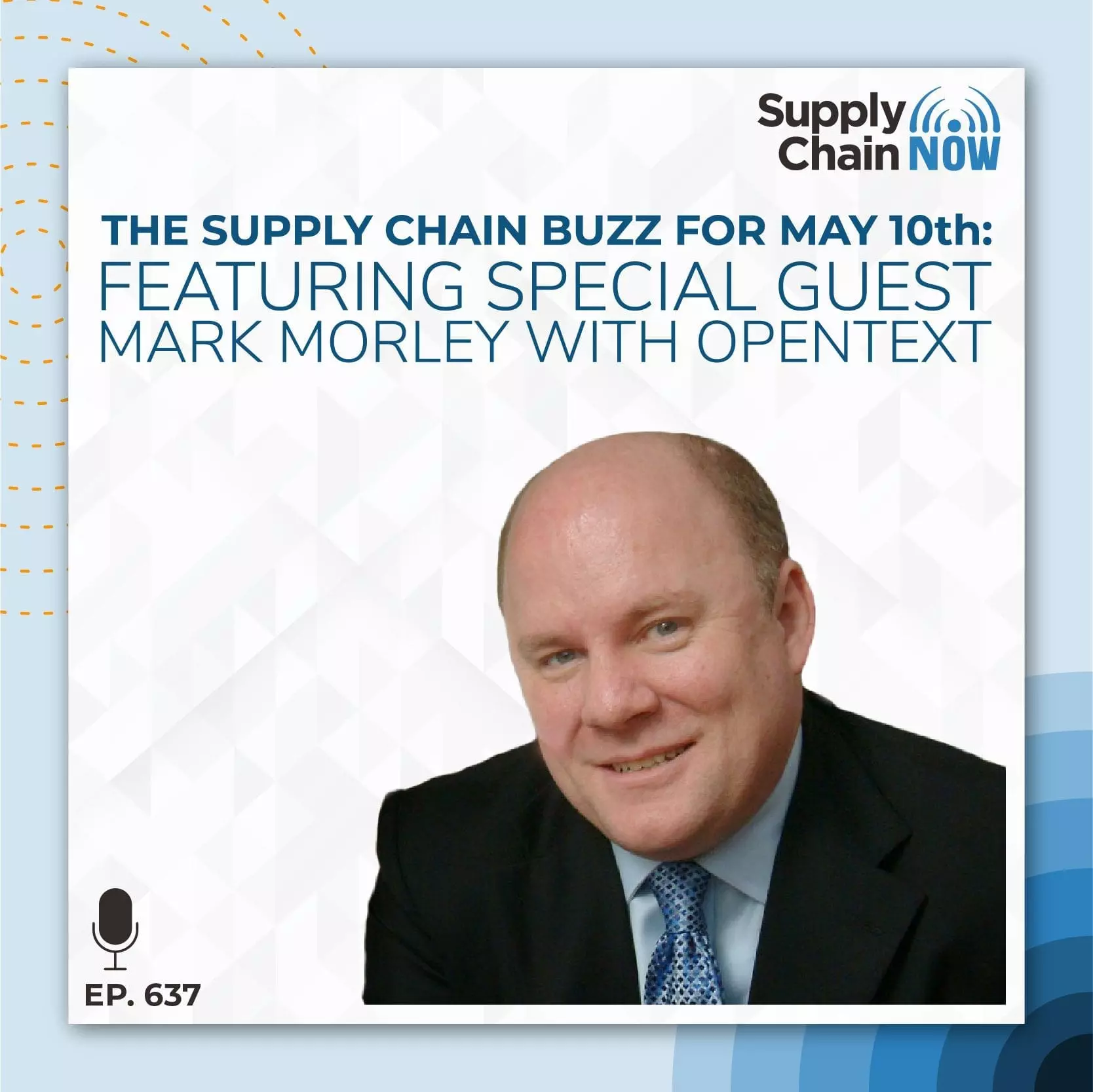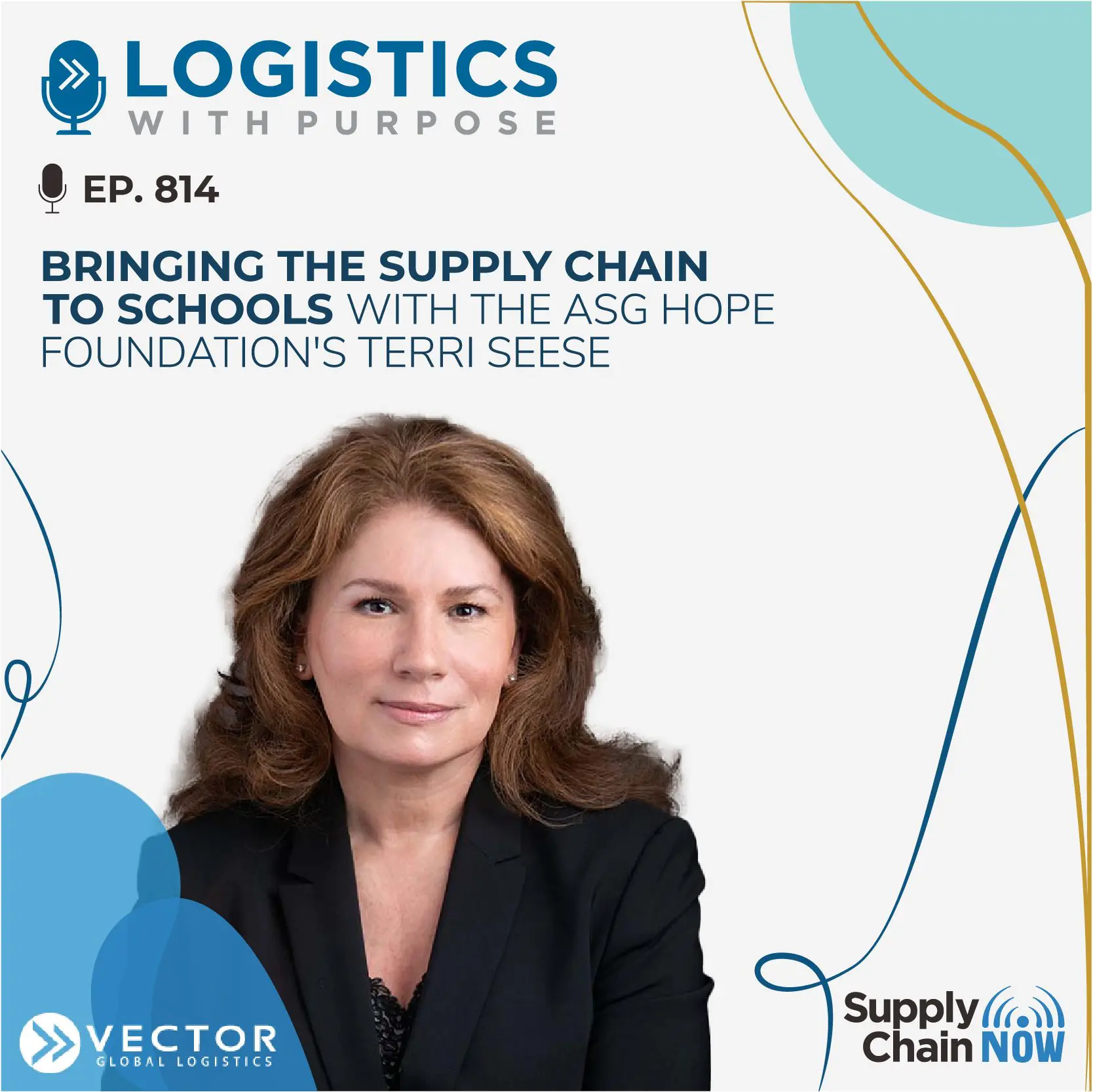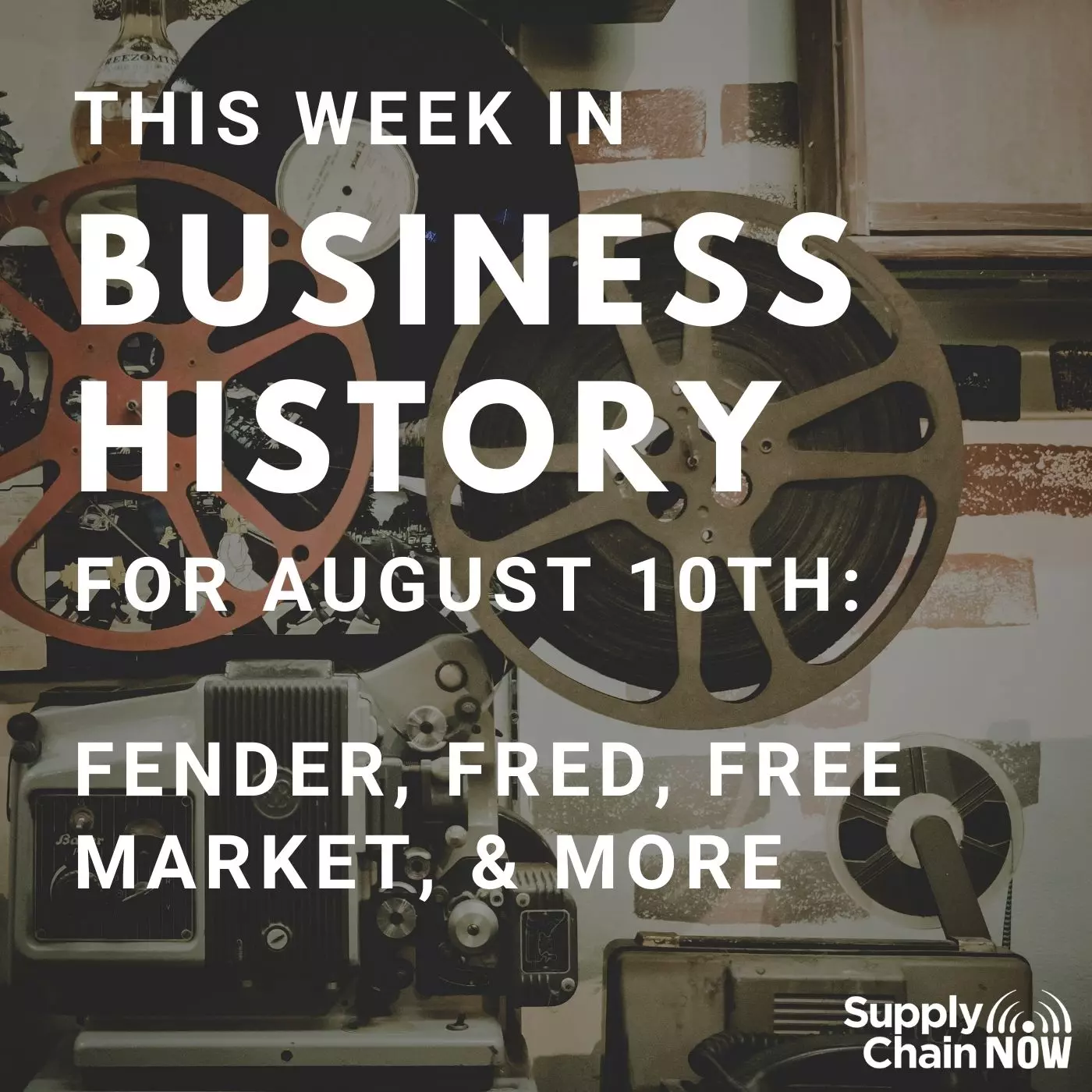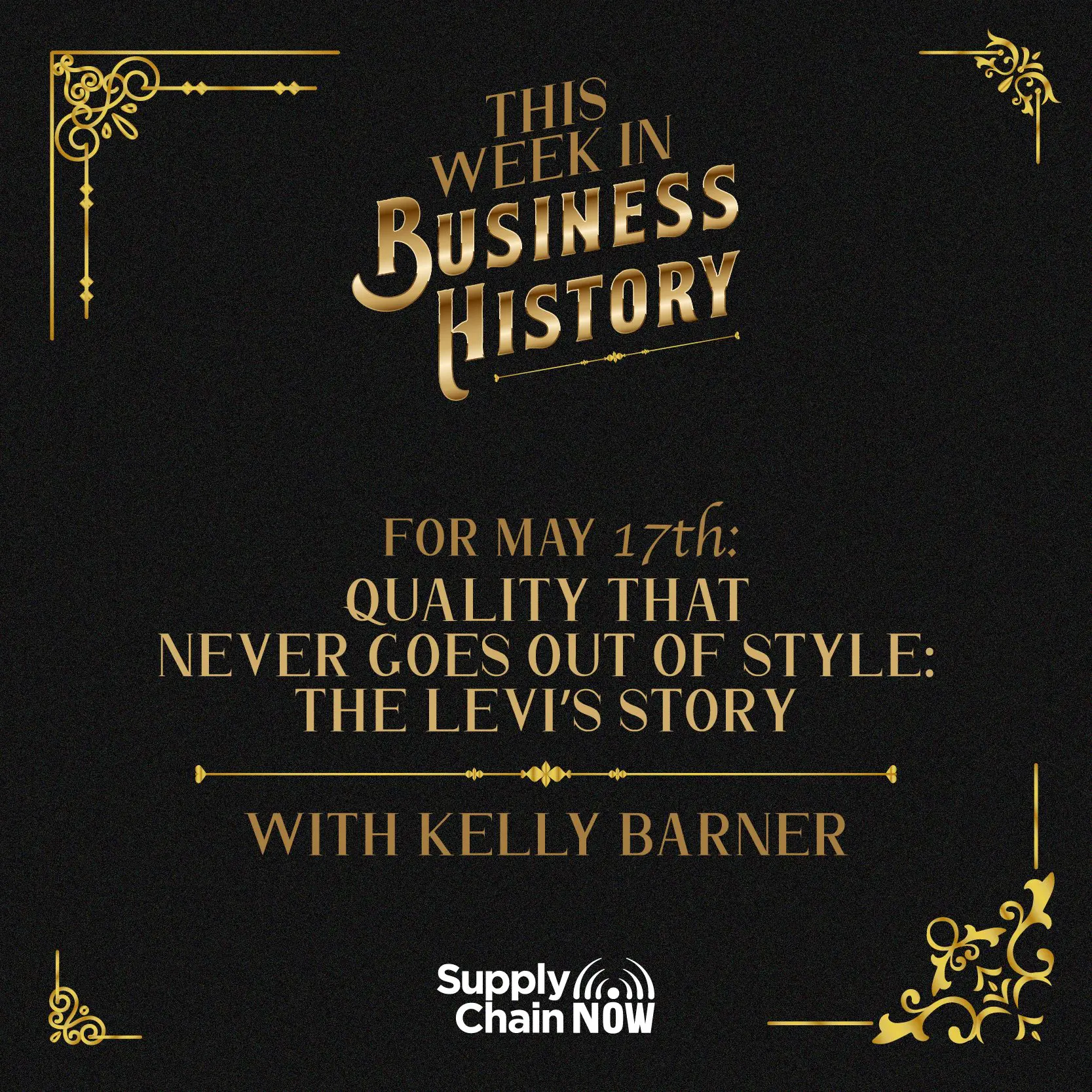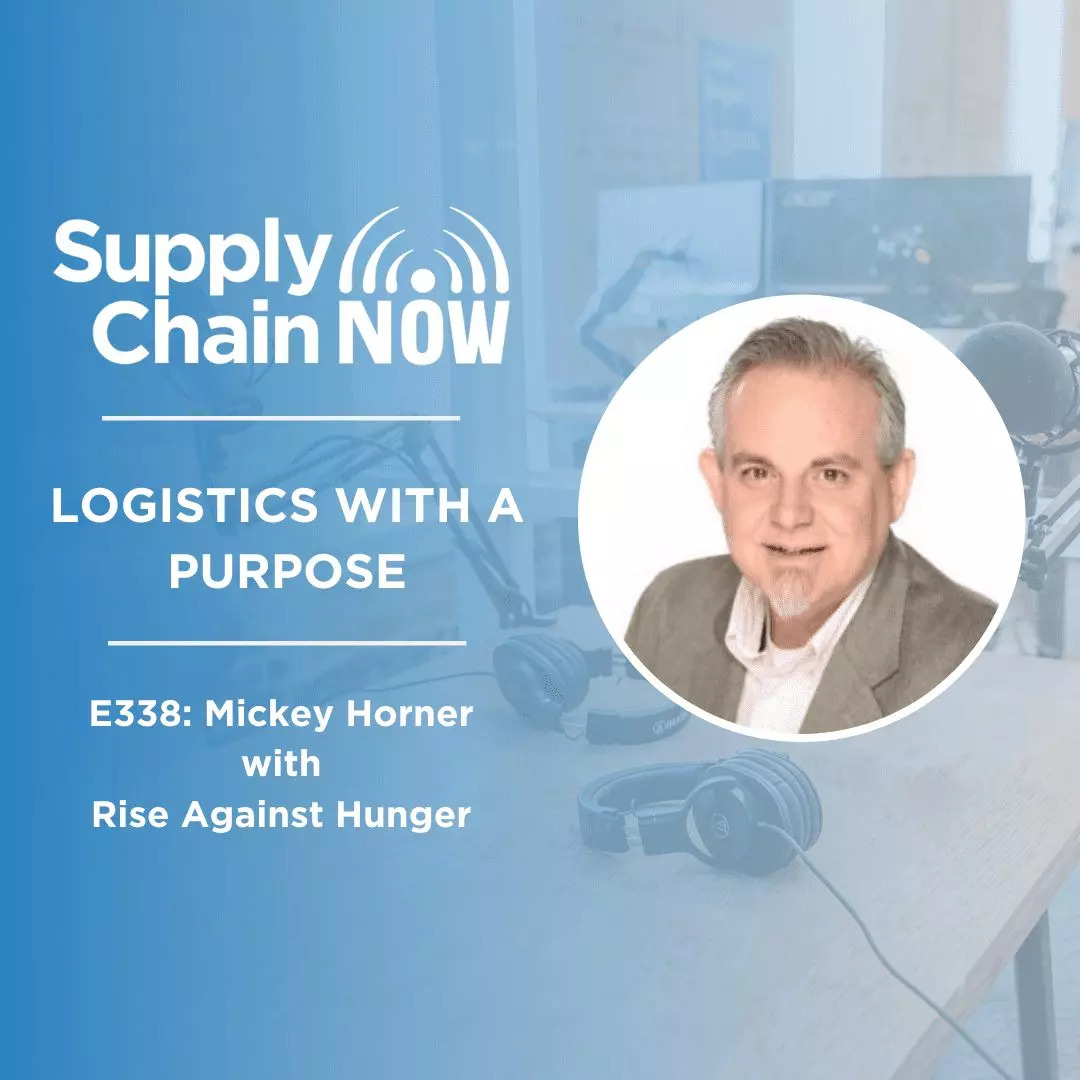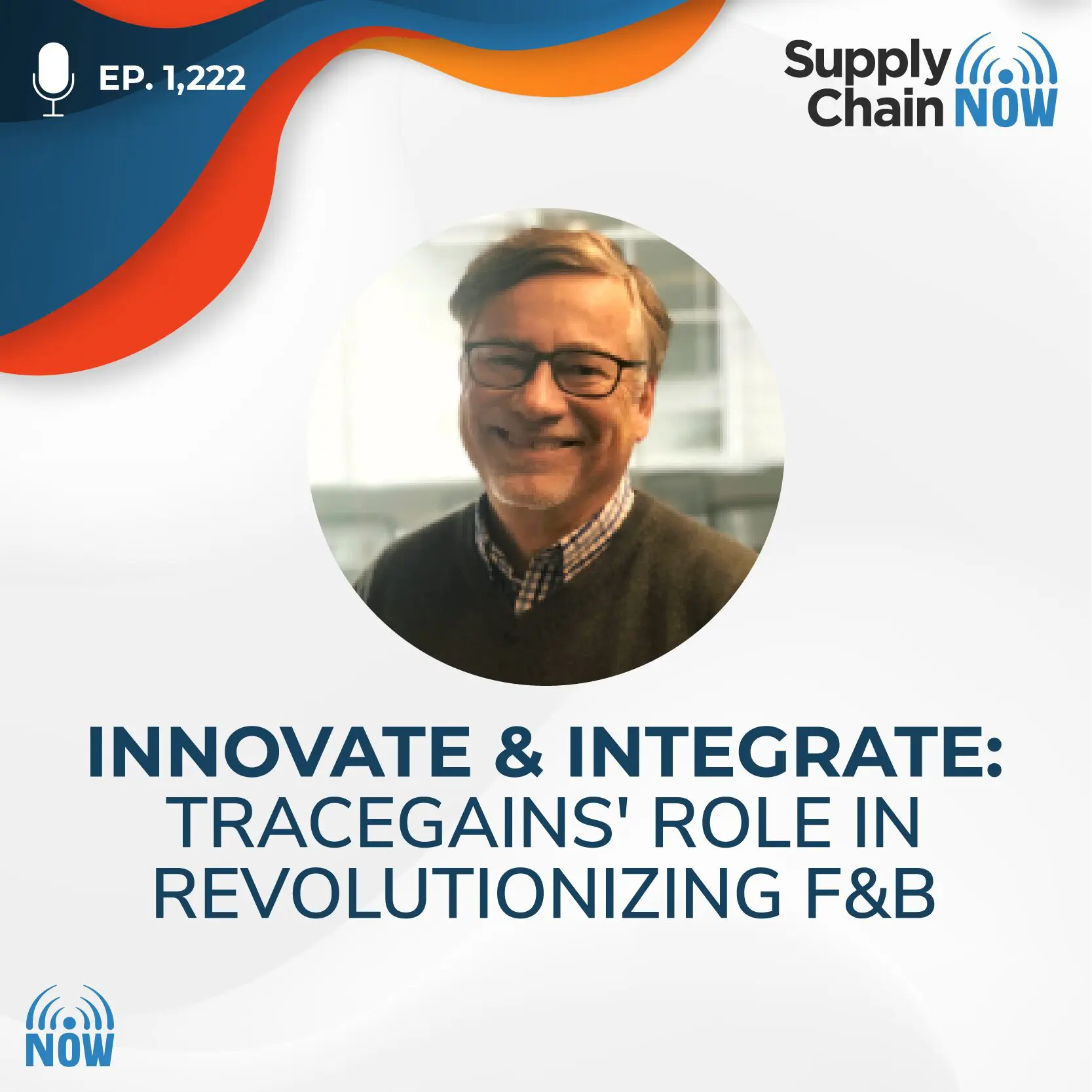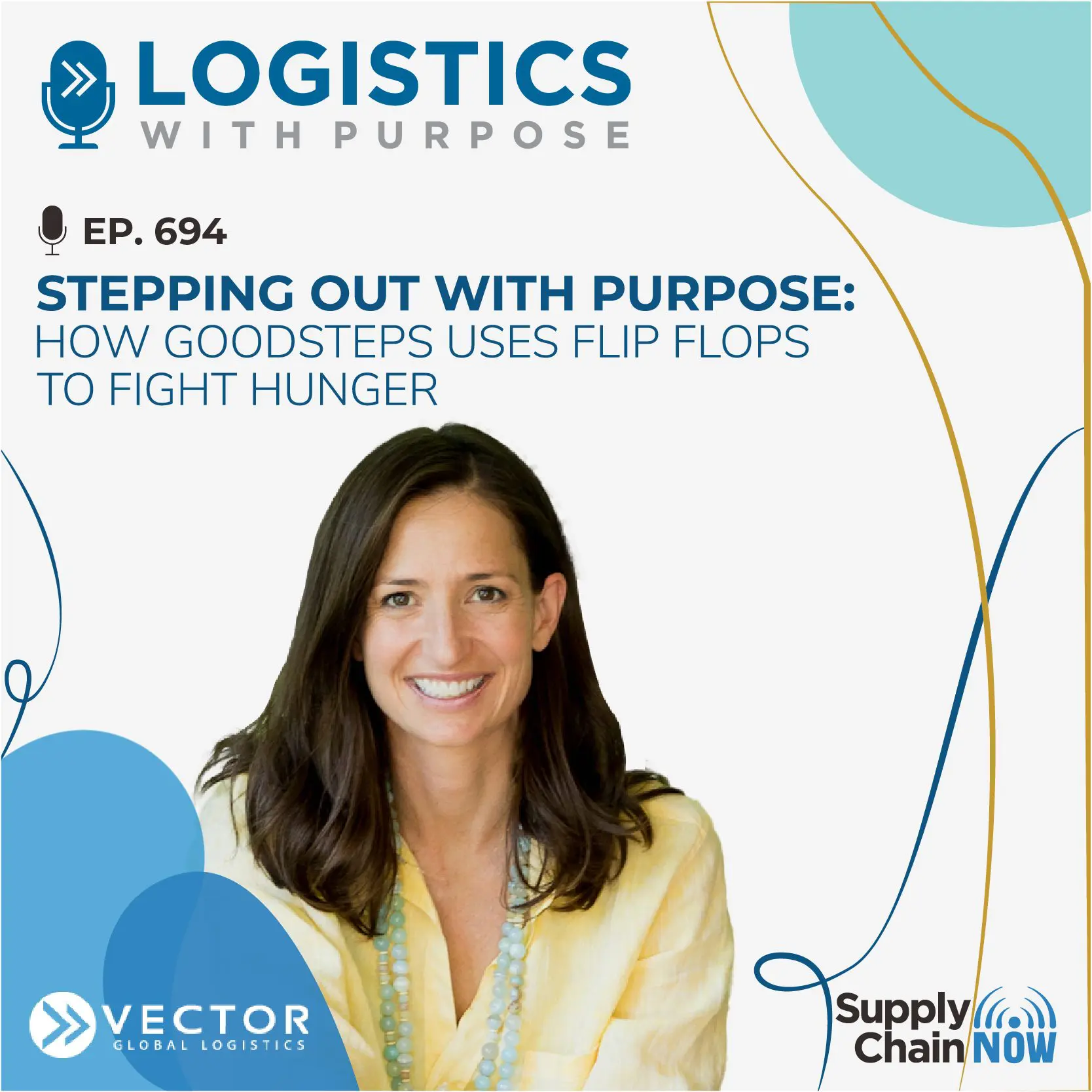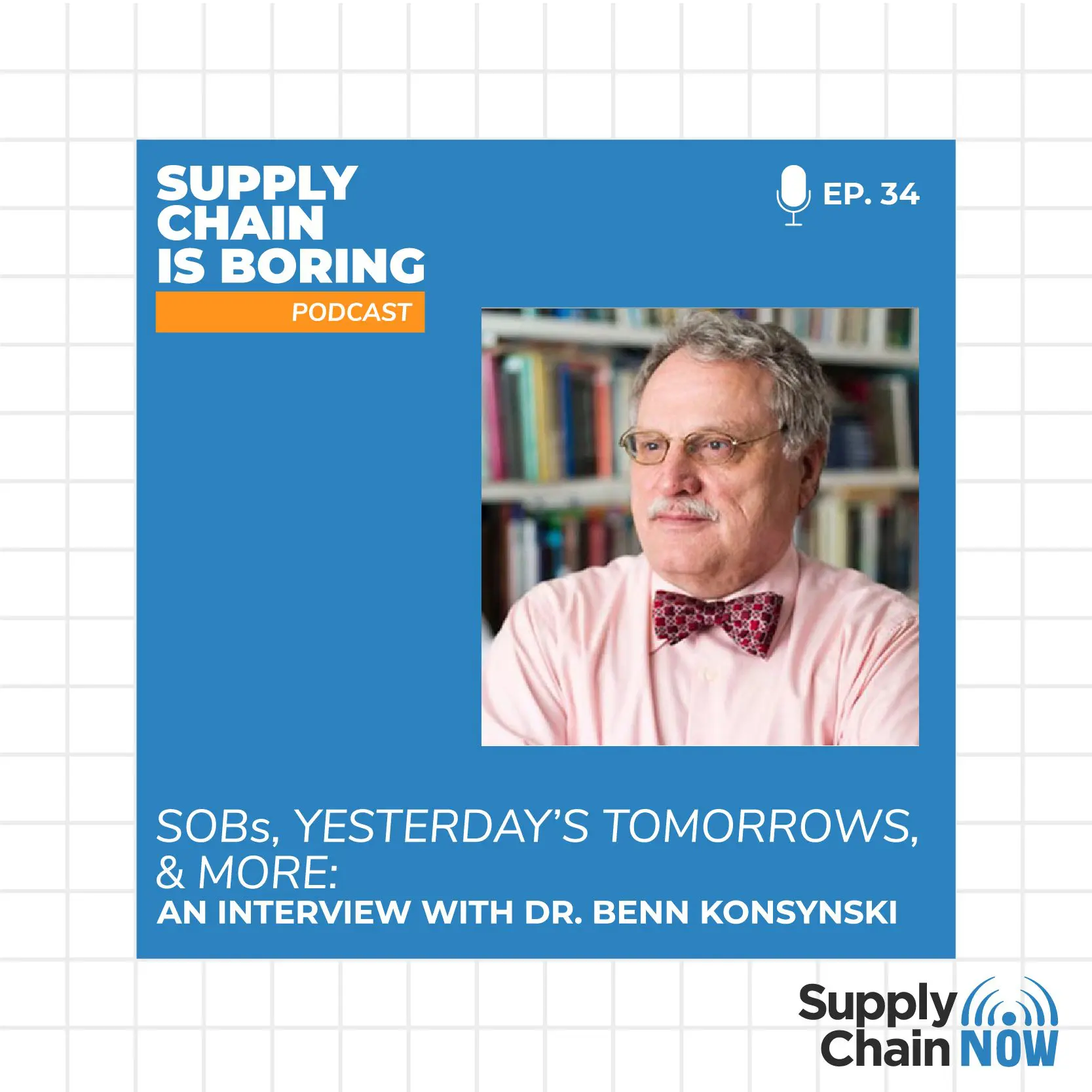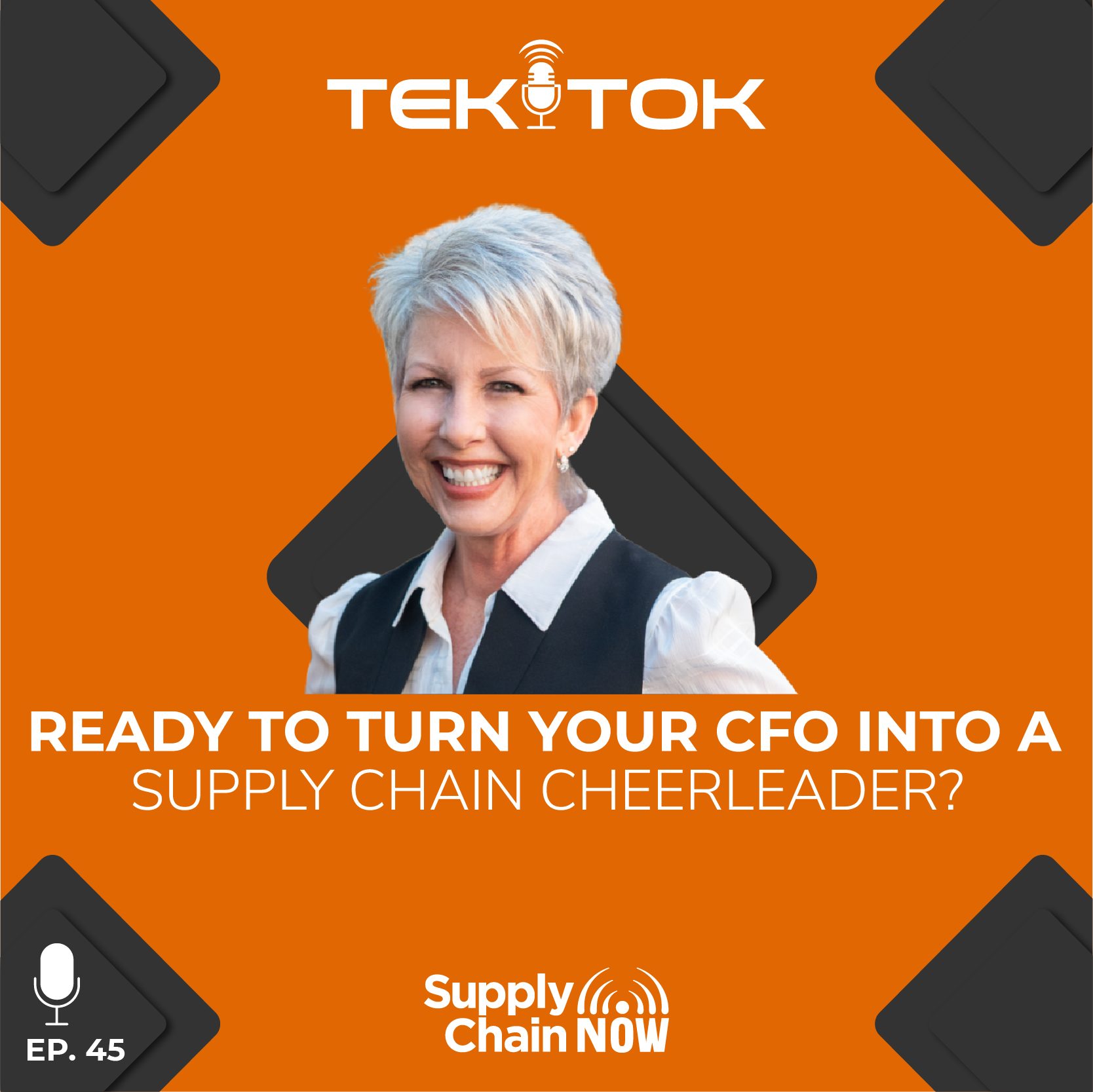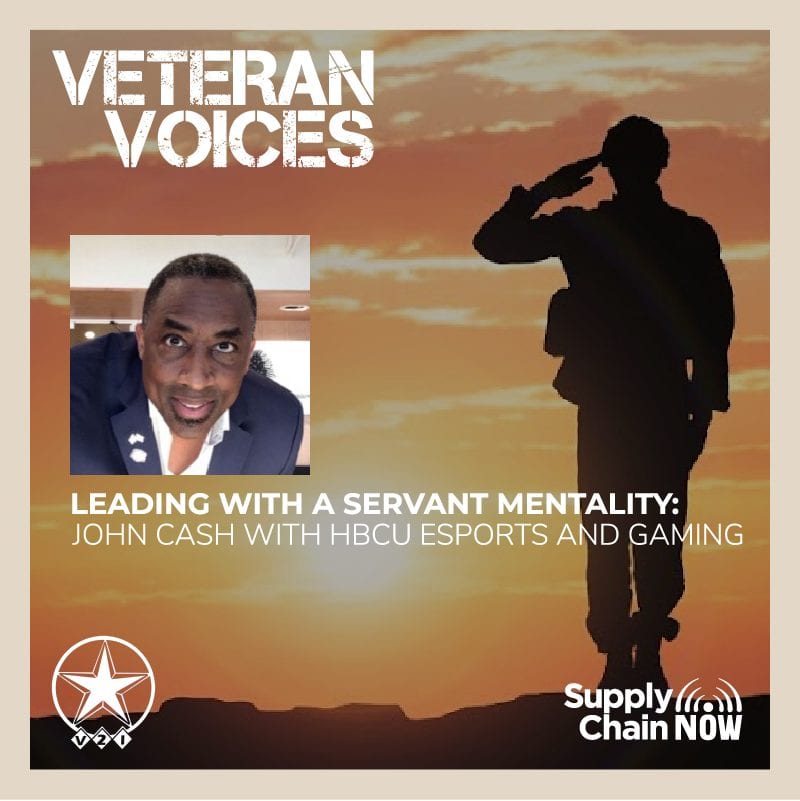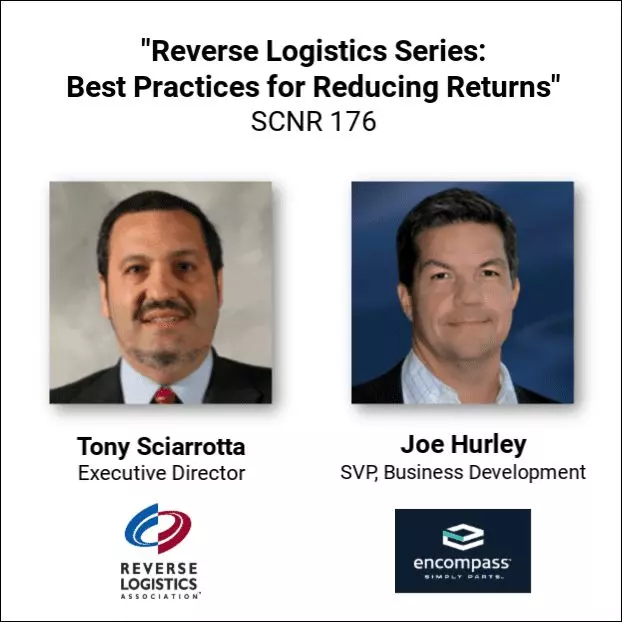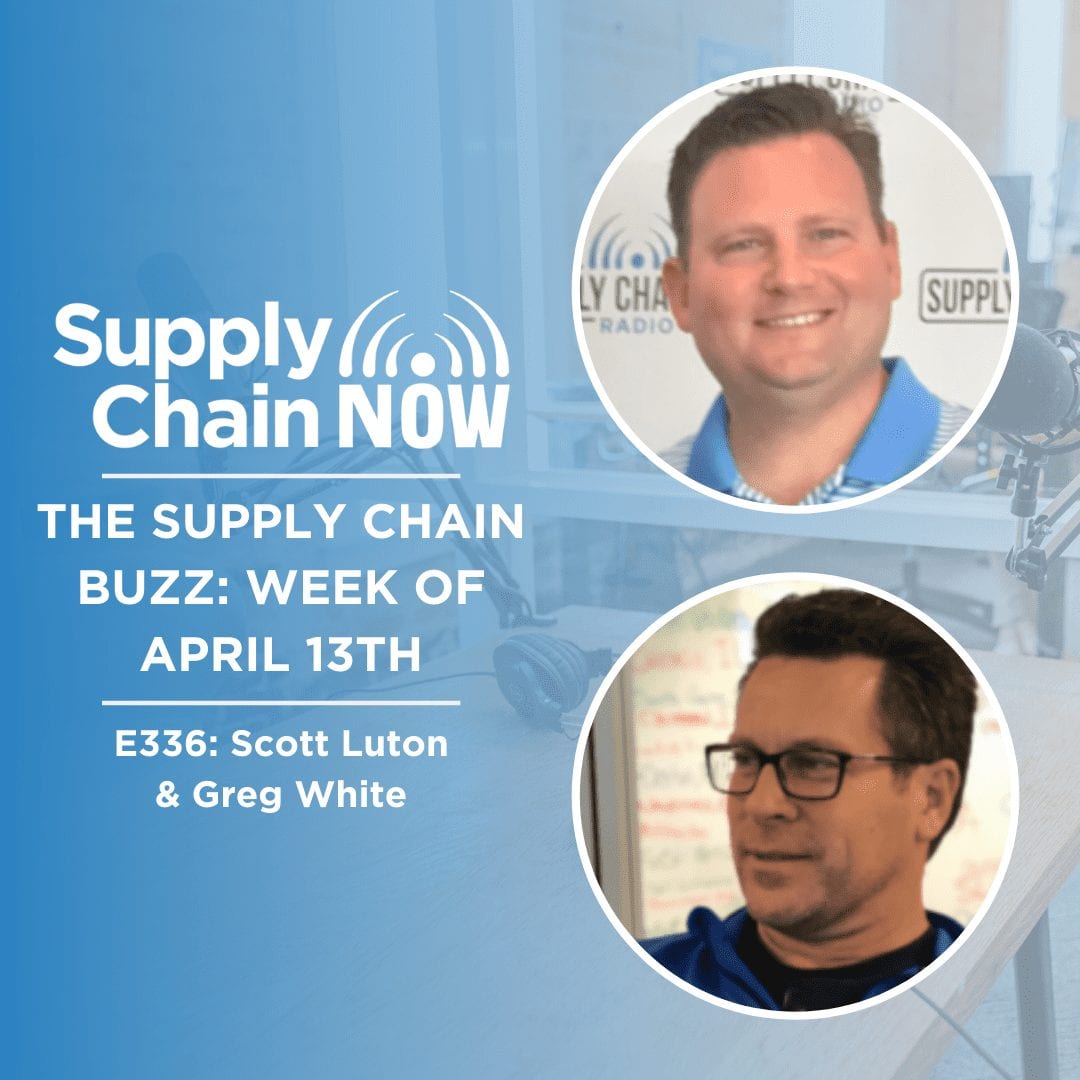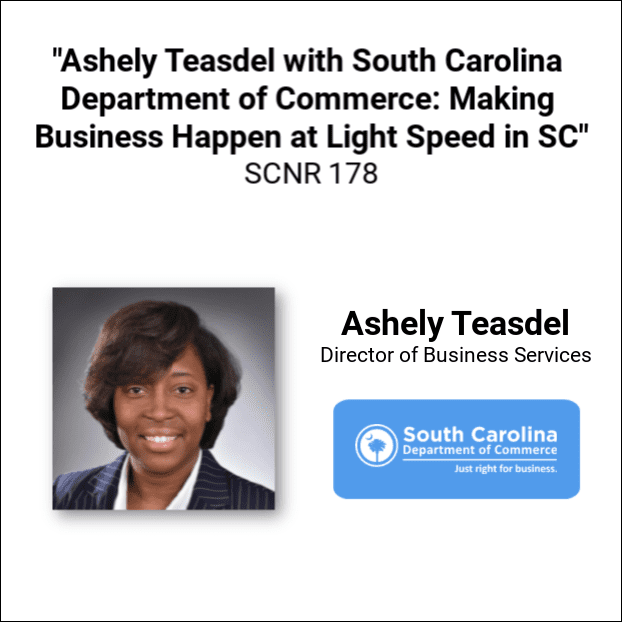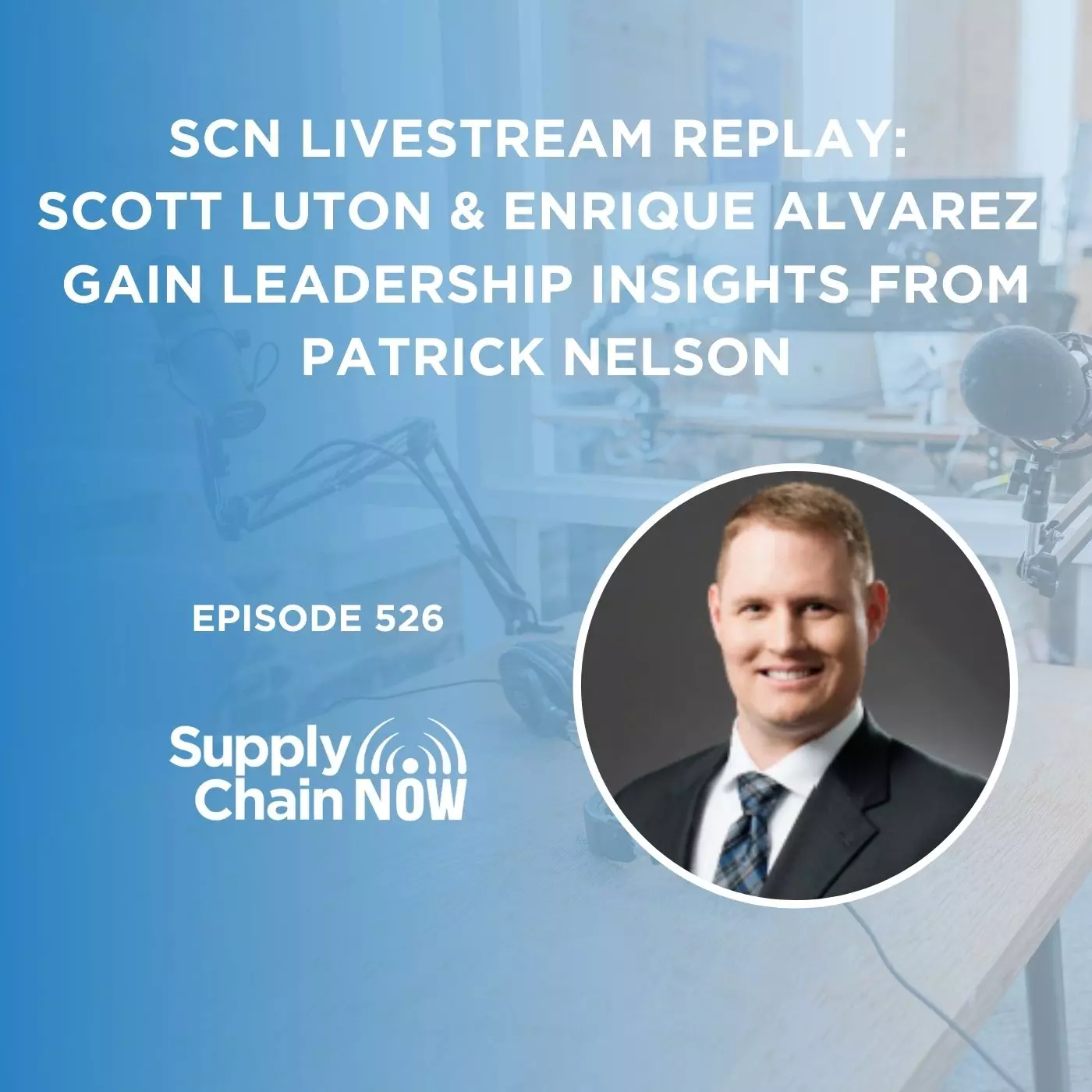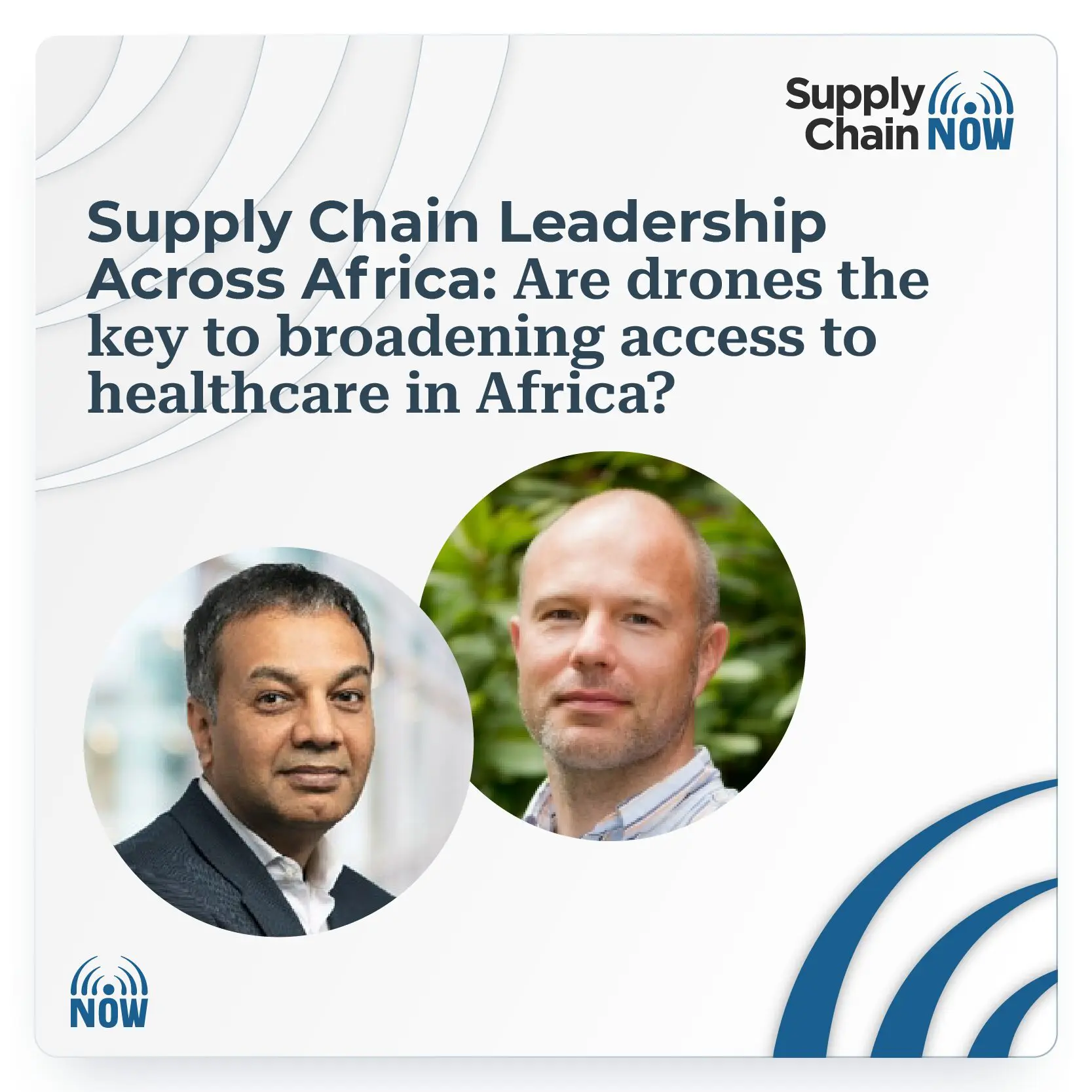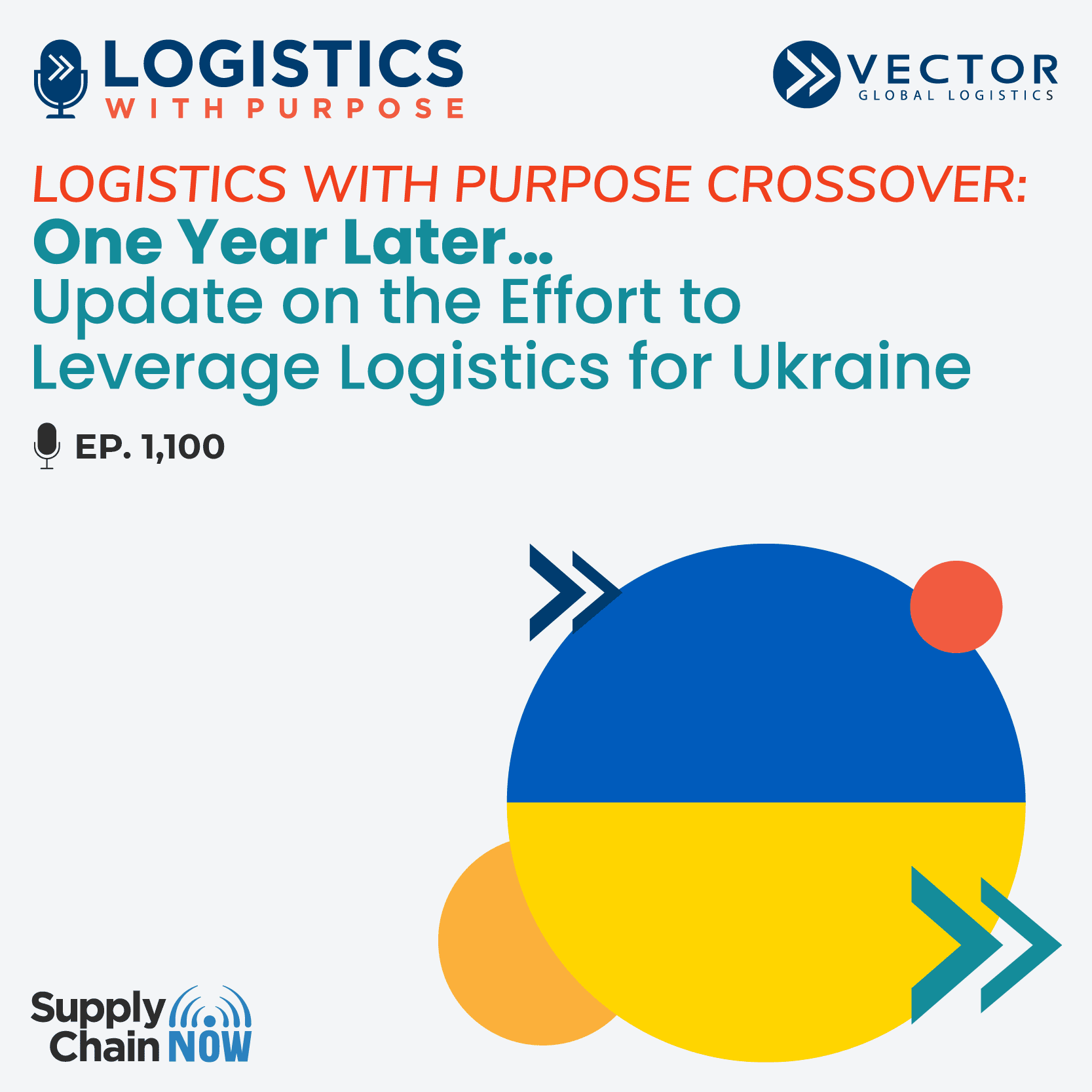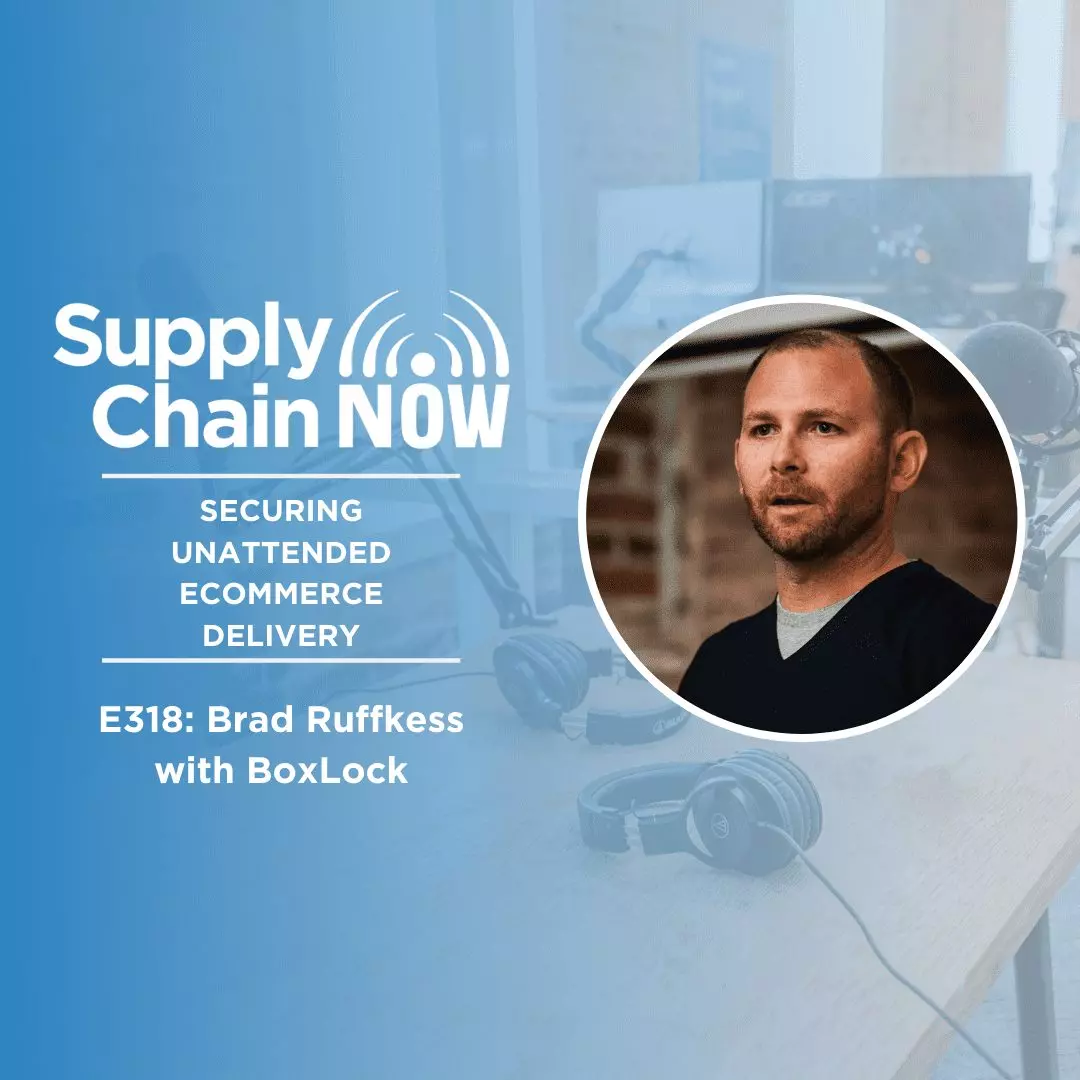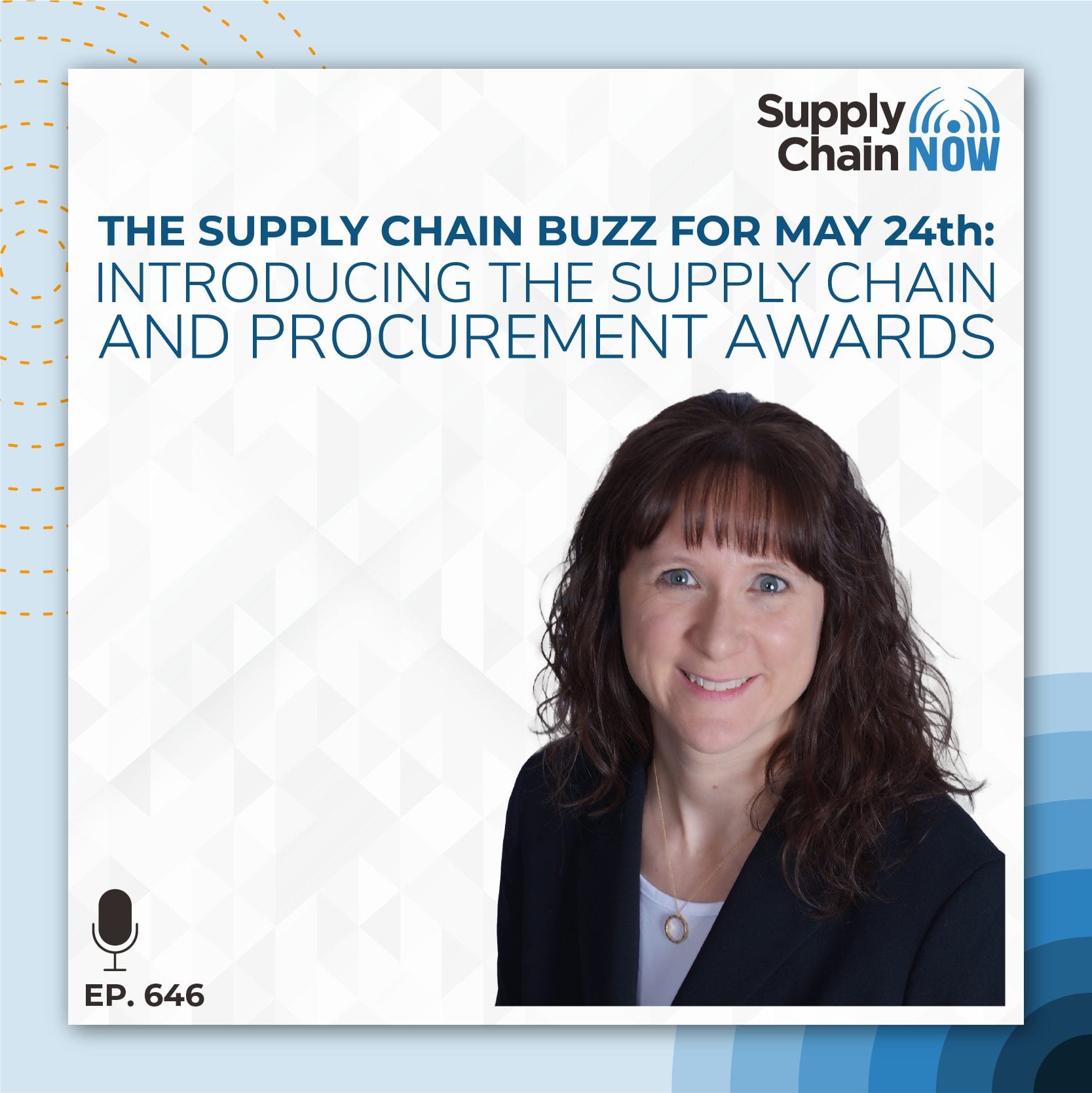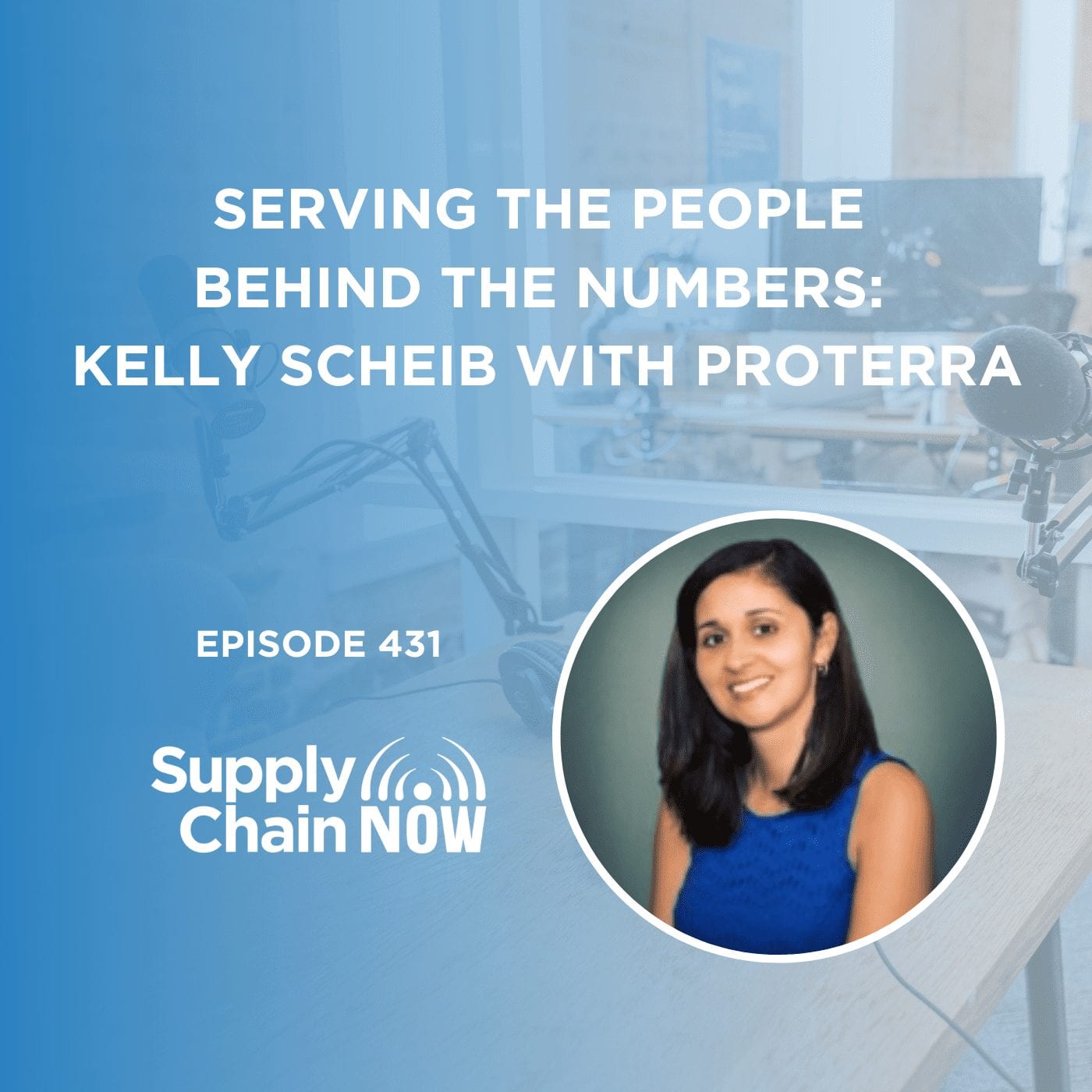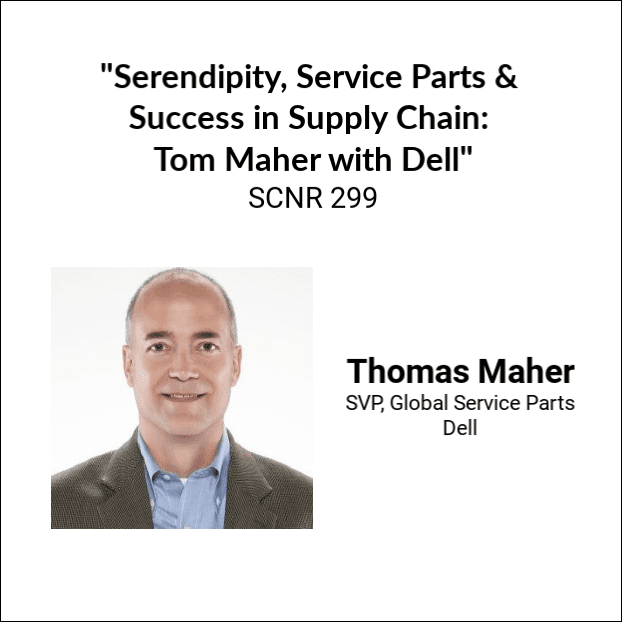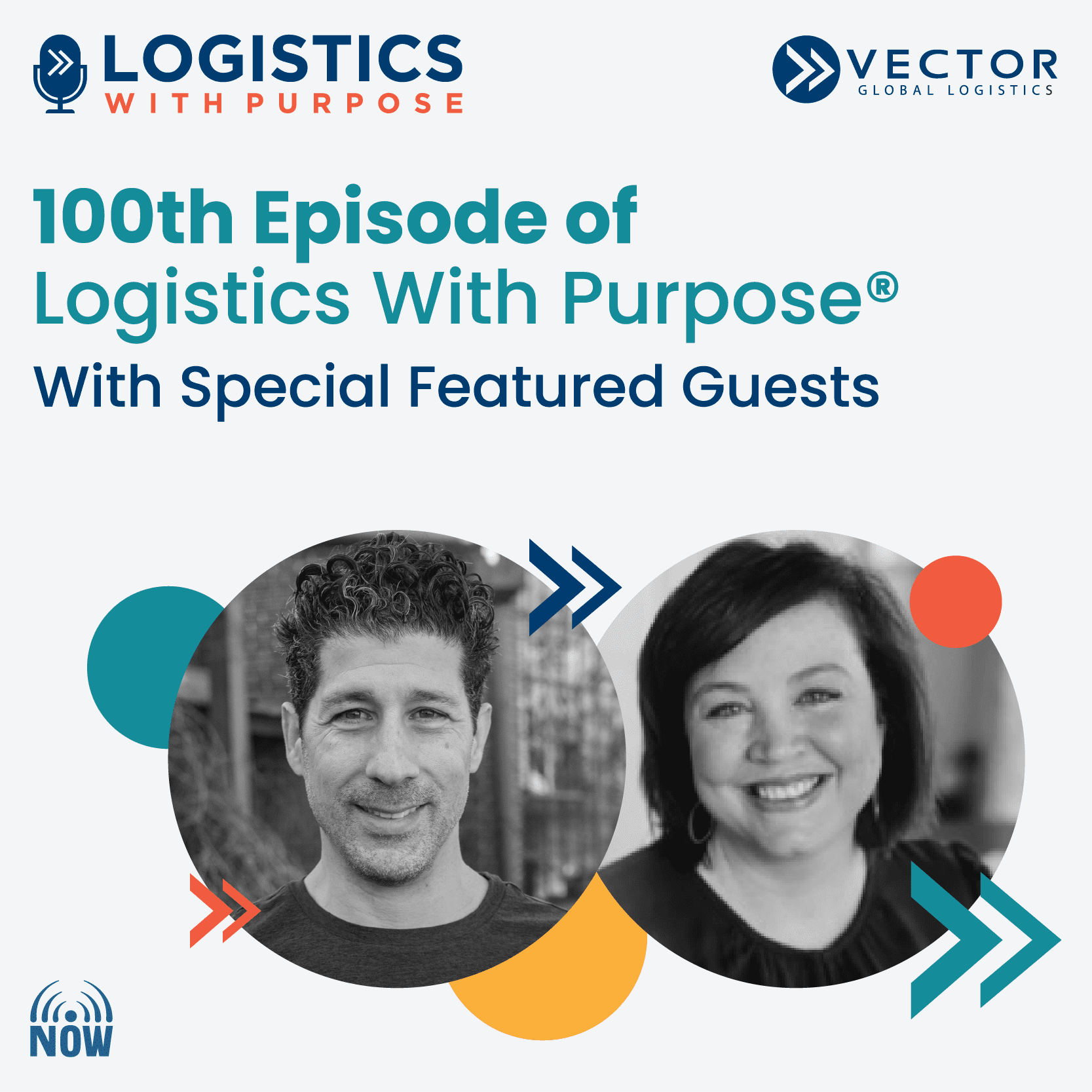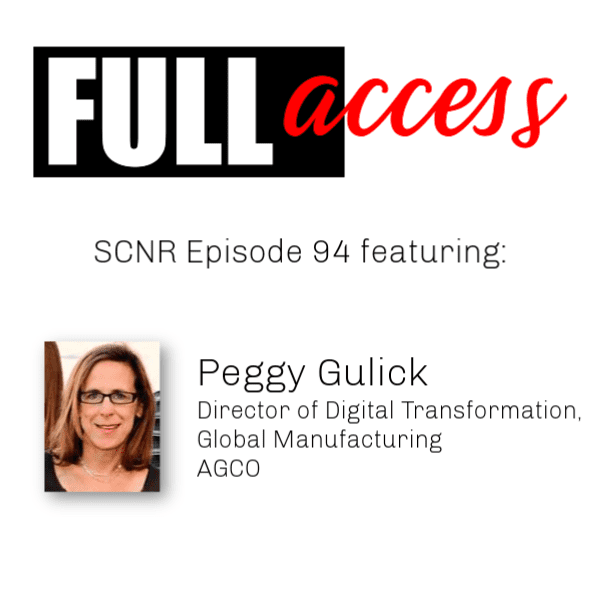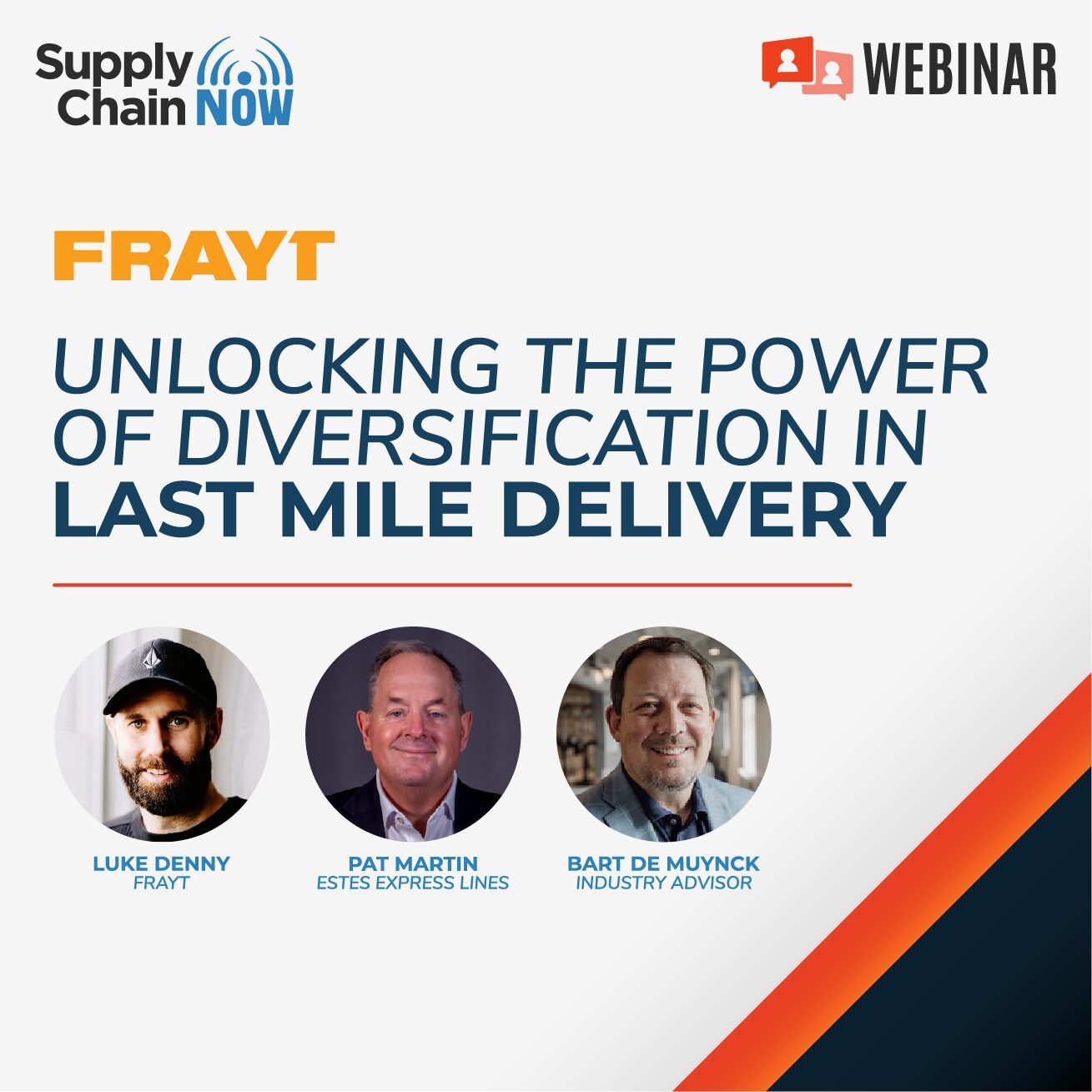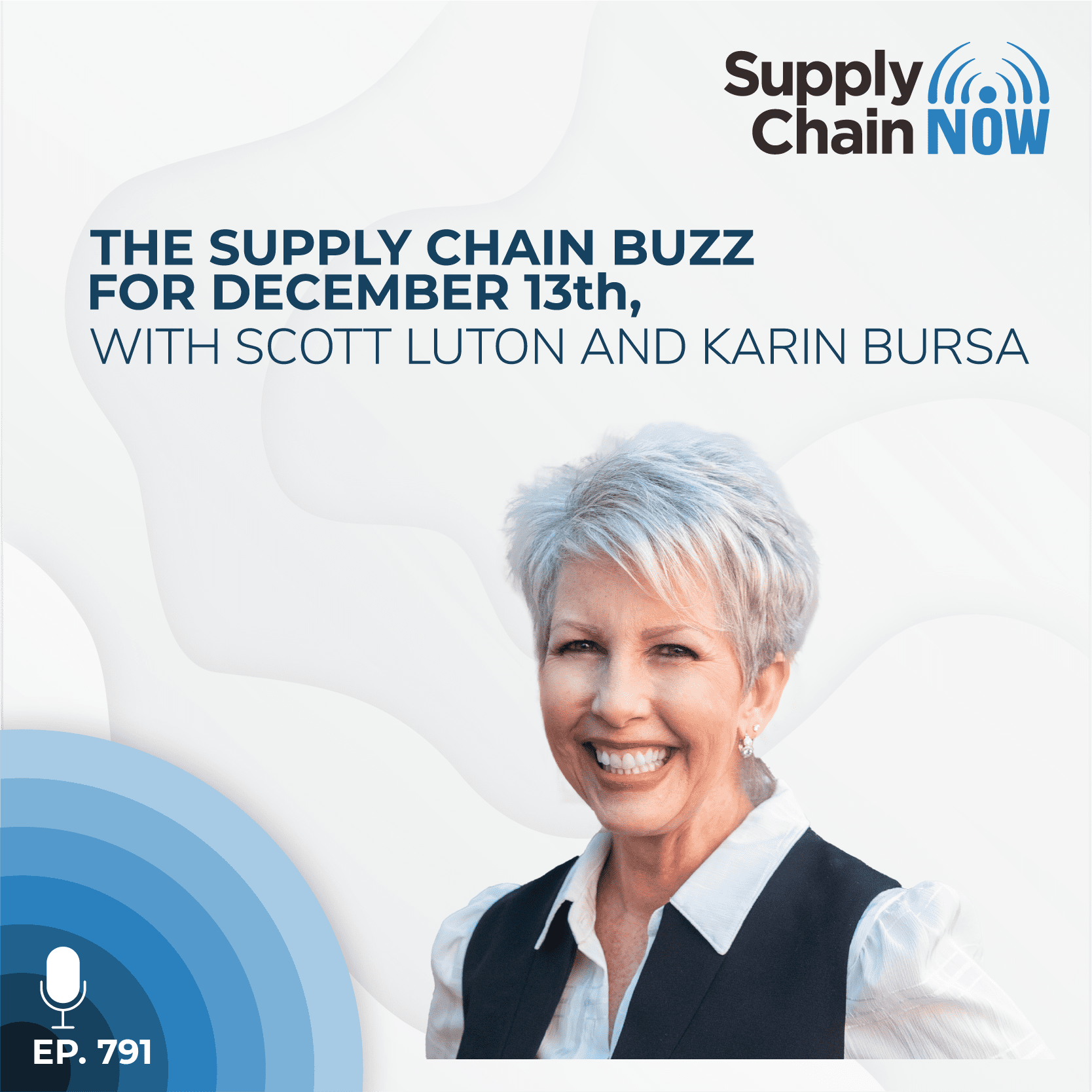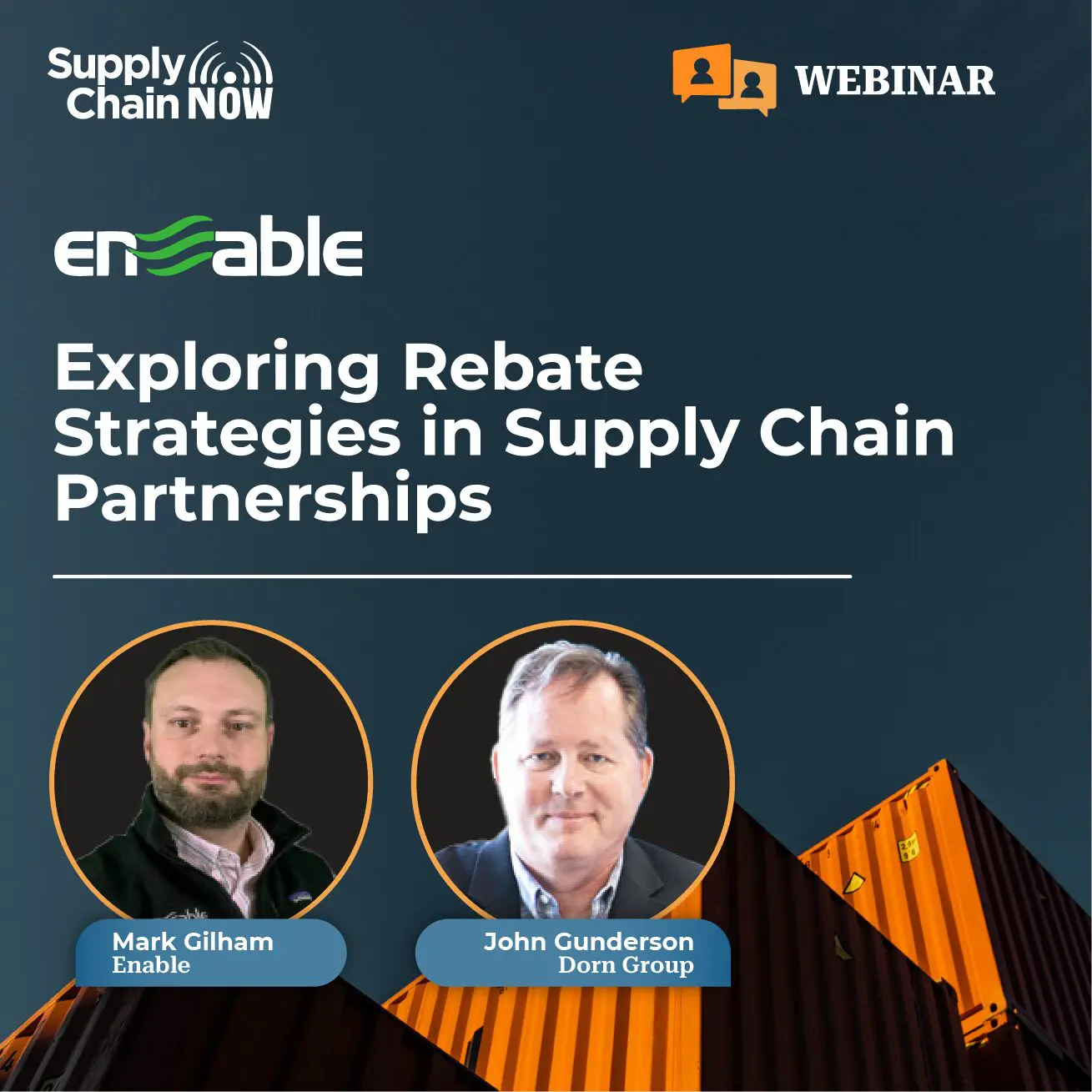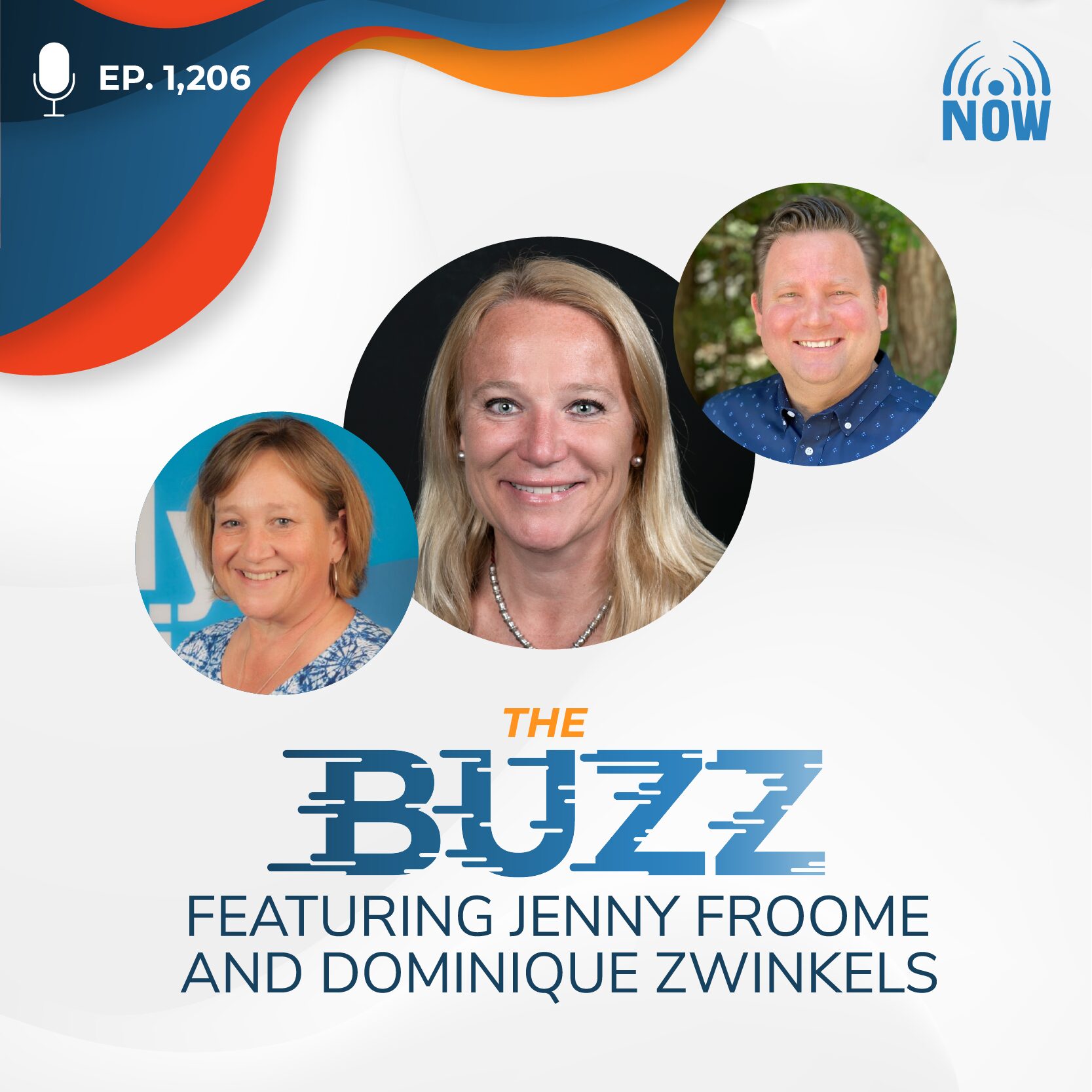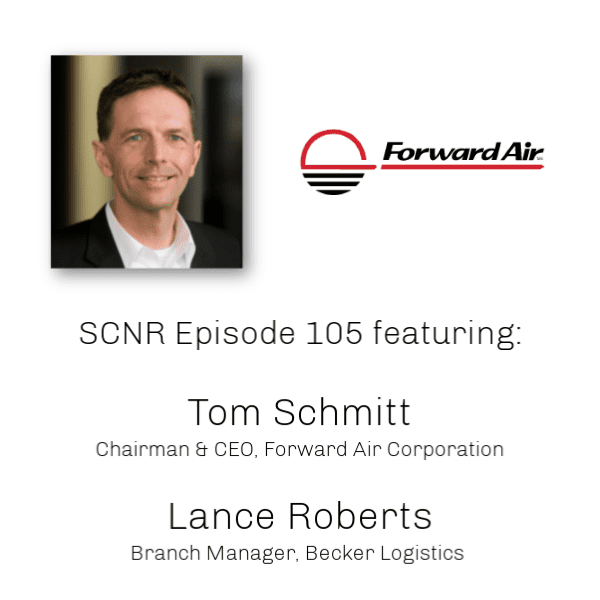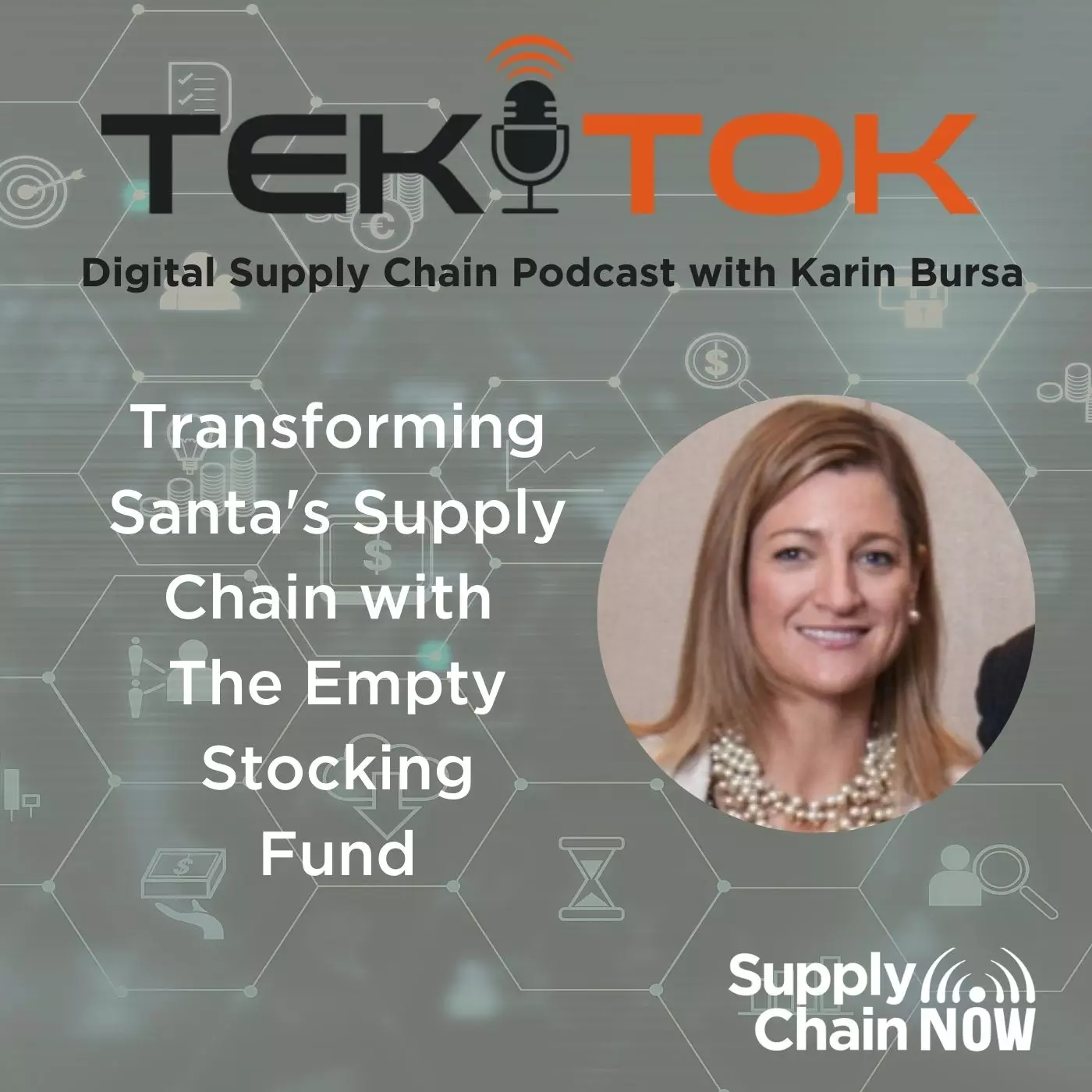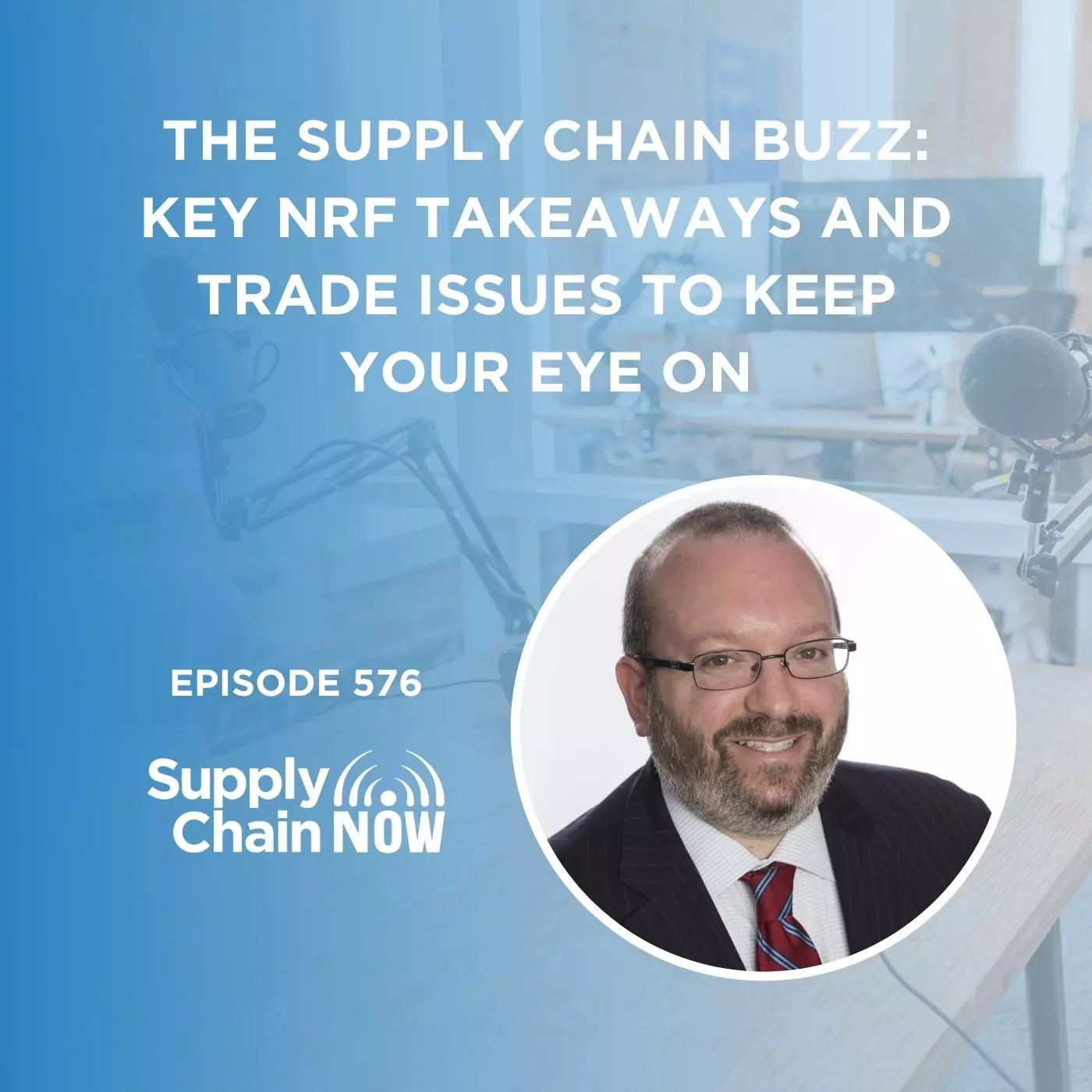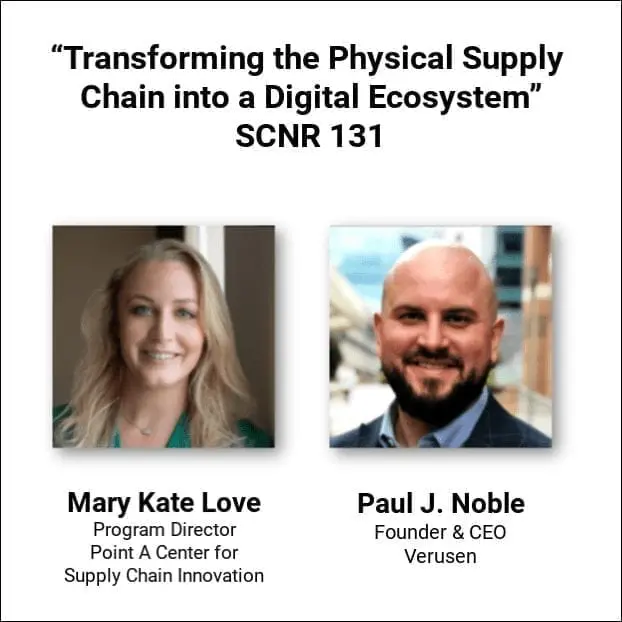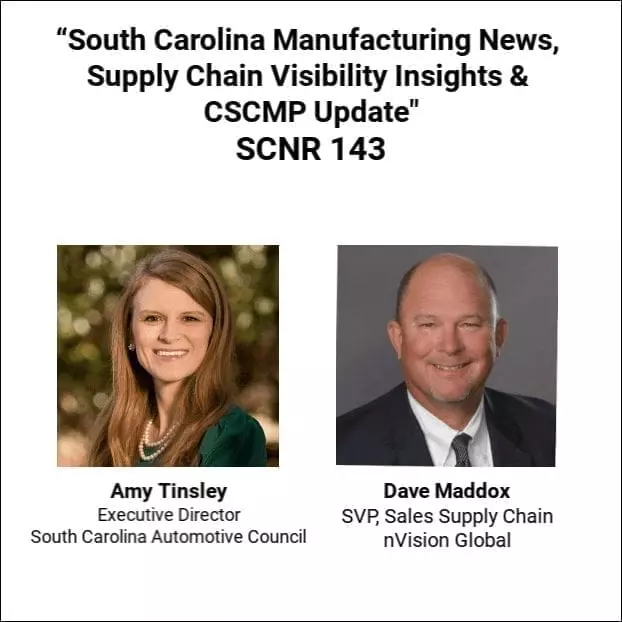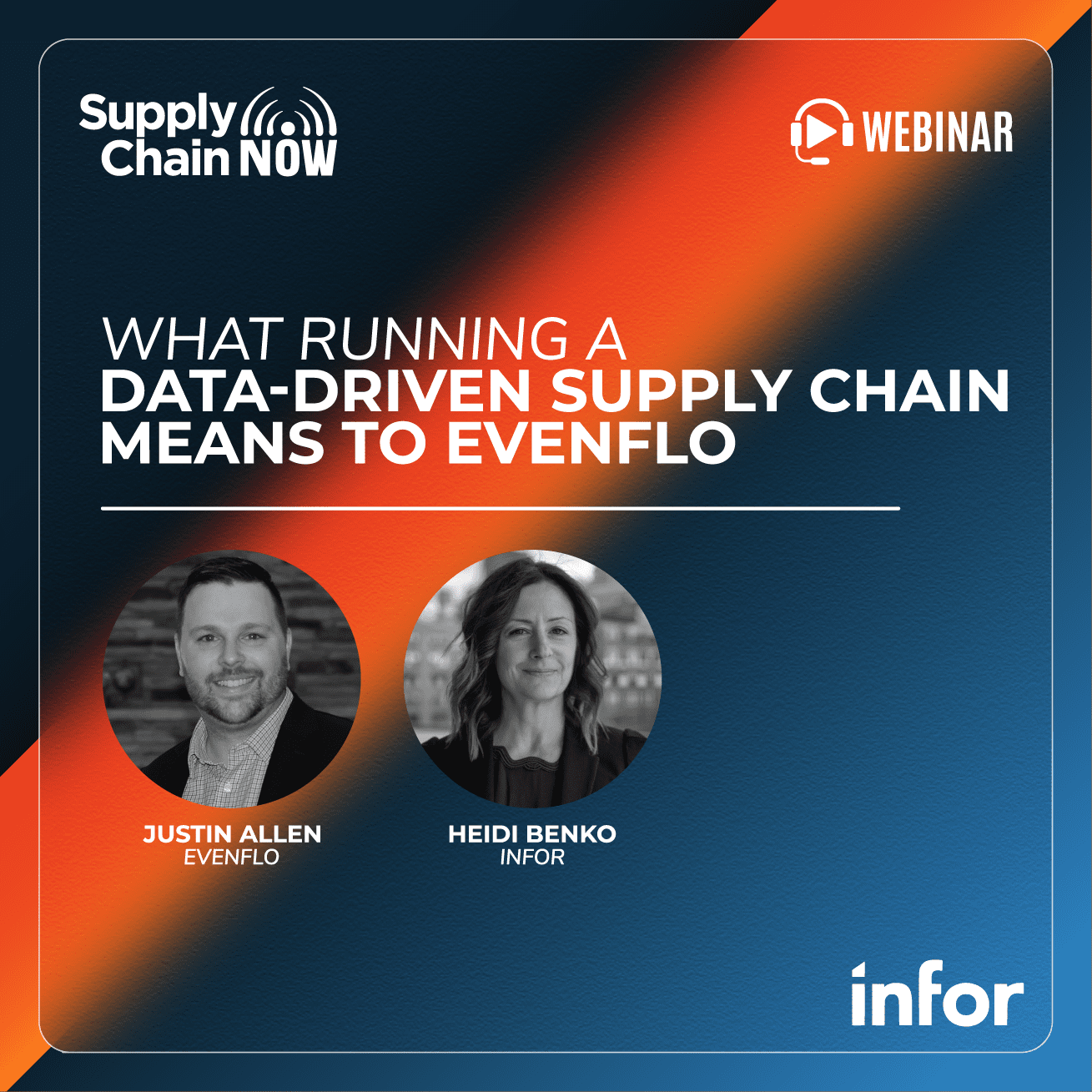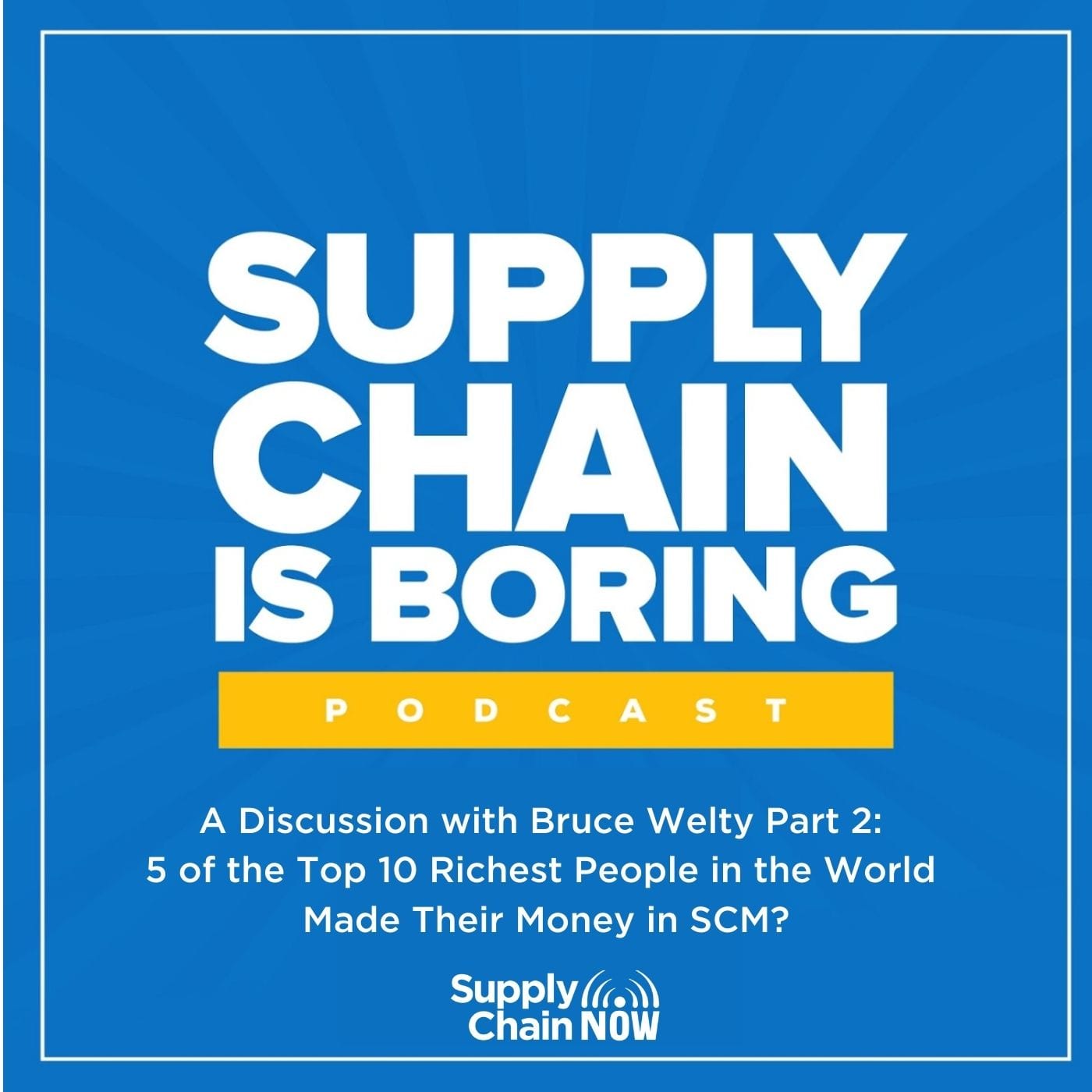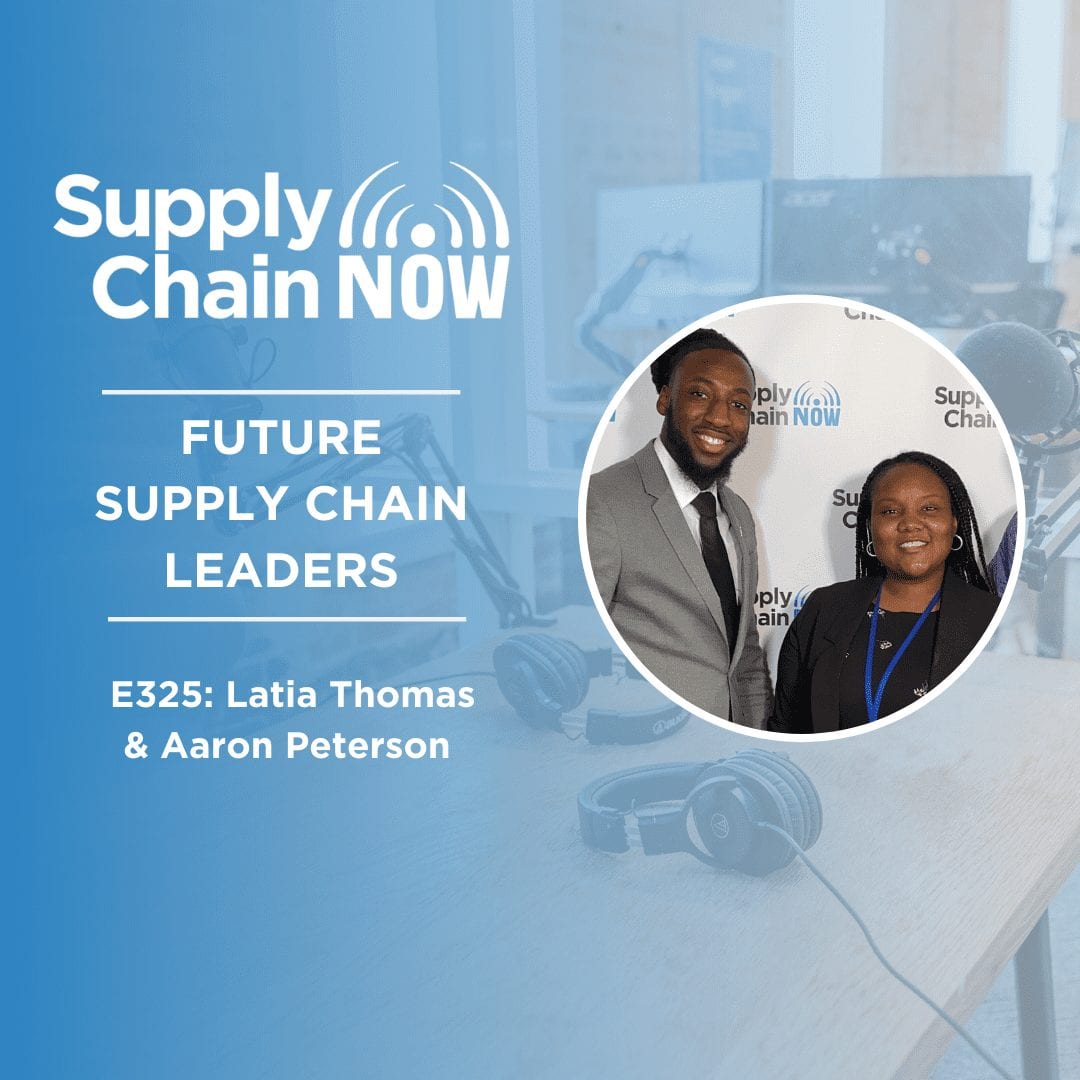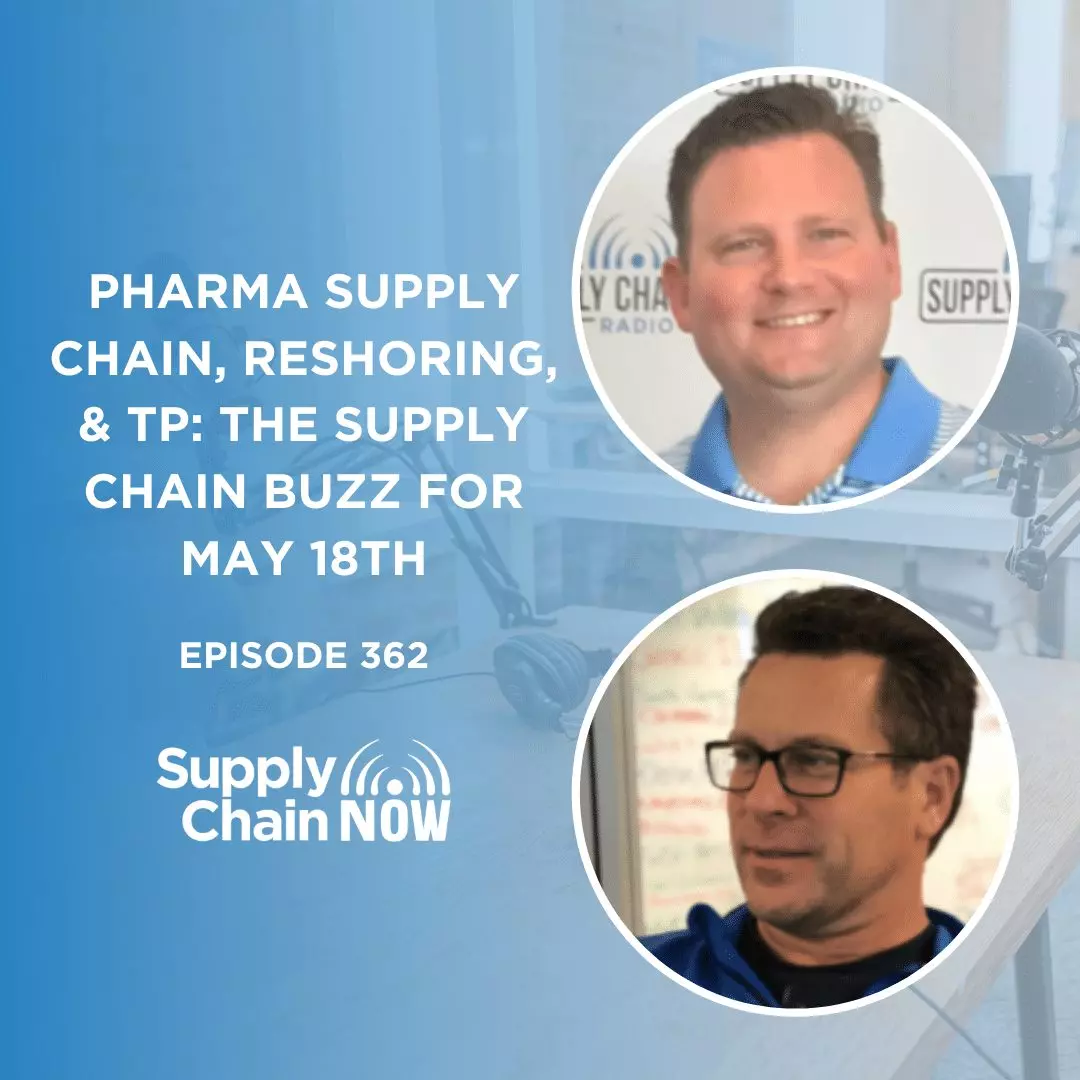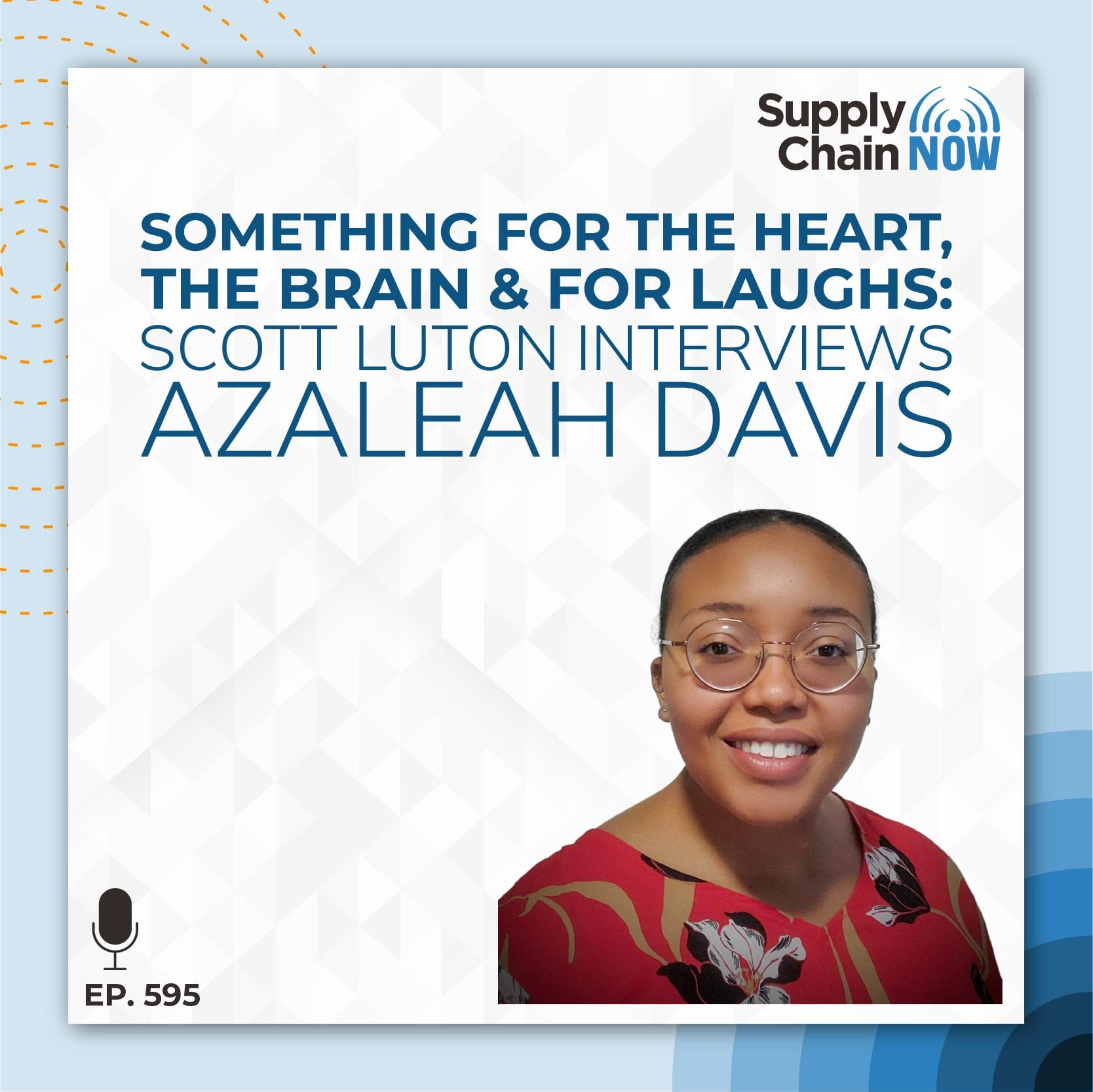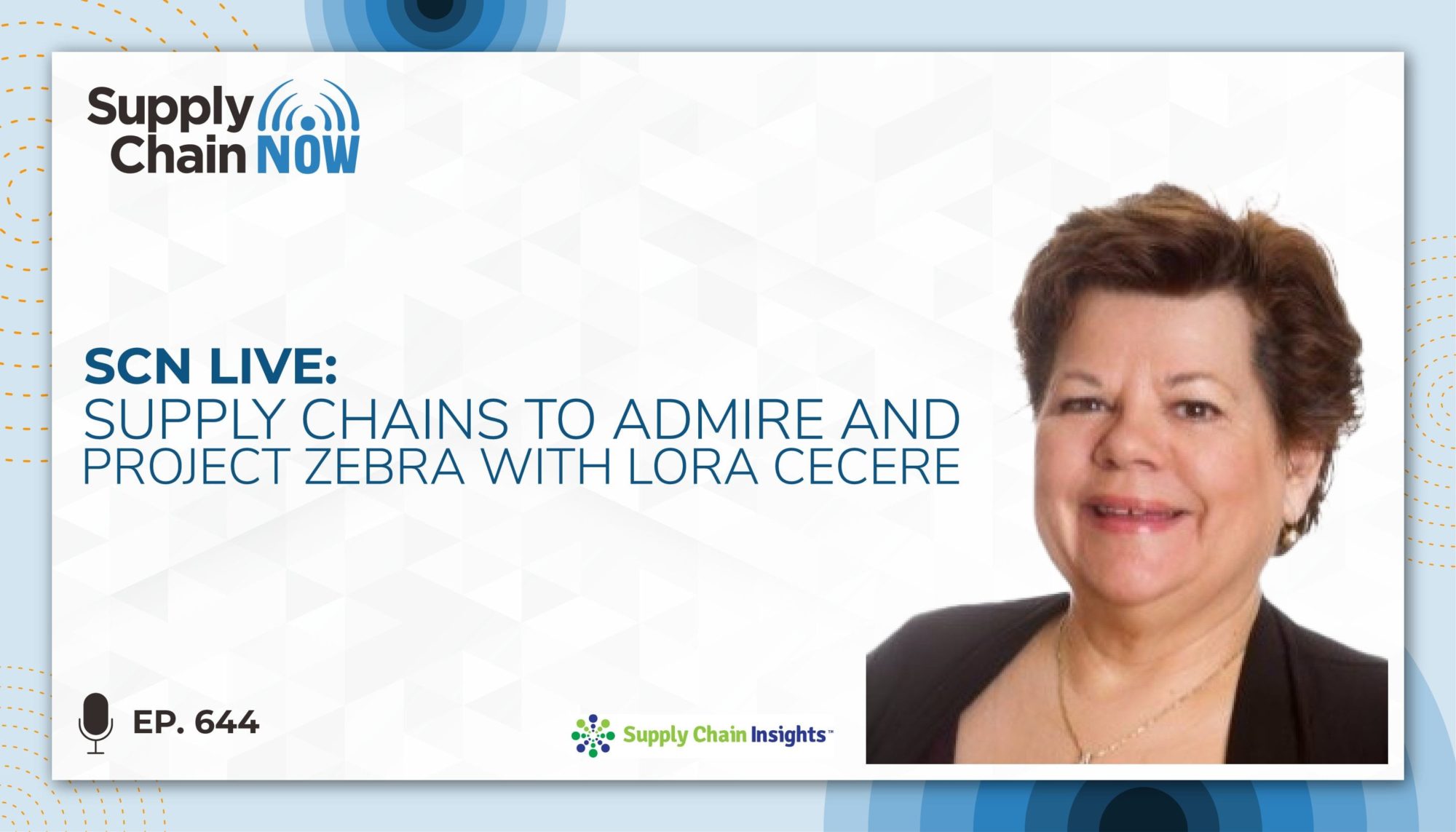
Episode Summary
“The automotive industry would be well-served to plant a field of carrots, right? You know, it’s more about carrots then sticks.”
– Lora Cecere, Founder and CEO of Supply Chain Insights
Few voices within supply chain command a larger audience – or more respect – than Lora Cerere’s. As an innovator, author, and podcaster, she regularly shares her point of view on all things supply chain – without mincing words or pulling punches.
Part of her objective approach to evaluating and improving supply chains is an insistence upon using data to drive decisions and recommendations. In many cases, it is the information companies don’t have access to that determines their success as much as it is the metrics they can track and influence.
In this episode, Lora digs into the details of the latest supply chain news and industry developments with Supply Chain Now Co-hosts Greg White and Scott Luton:
· The impact that the surge in COVID-19 cases in India is having on supply chain software development timelines
· Why the stories about the chip shortage in the automotive industry may be ‘burying the lede’ on the fact that auto manufacturers are poor supply chain partners
· Her reasons for dividing companies into peer groups before evaluating and ranking their supply chain performance metrics
Episode Transcript
Intro/Outro (00:03):
Welcome to supply chain. Now the voice of global supply chain supply chain now focuses on the best in the business for our worldwide audience, the people, the technologies, the best practices, and today’s critical issues. The challenges and opportunities stay tuned to hear from those making global business happen right here on supply chain now.
Scott Luton (00:32):
Hey, good afternoon, Scott Luton, Greg White, with he here at supply chain. Now welcome to today’s live stream, Greg. You’re on the move live
Greg White (00:42):
From the field. Scott, am I coming in? Okay.
Scott Luton (00:47):
You can. So Greg, you are in, uh, basically, uh, downtown Atlanta at the ATDC, right?
Greg White (00:54):
Yeah. The Atlanta technology development center, the big incubator, the Georgia tech incubator. So visiting one of our partners and one of the companies that I, uh, that I advise wrong shoulder
Scott Luton (01:07):
Verisign, I was about to say, you’re advising one of the largest strategic planning. Great to see you. I think we’ve got just a heads up. We’ve got a little bit of a delay, I think, between our connection, but we’ll walk through that today. Um, and welcome everybody. Uh [inaudible] is already here. Geneva’s great to see you. I hope this finds you and your family well and, and, and your whole neighborhood. I know that you’re working through that second wave and, and we’re with you. So we’re going to touch on that here momentarily, but Geneva’s hope this finds you well. Uh, and we’ll, we’ll get back to saying hello to everyone else here in a minute. But today, Greg, we’ve got a special guest for us, uh, Siri, founder of supply chain insights amongst other things, and one of the most respected voices in global business. So we’re looking forward to a great conversation today.
Greg White (01:54):
Truth teller, all knowing all seeing, yes, I am really looking forward to this and especially what she’s going to share, right? Which I’m not, I’m not going to give away.
Scott Luton (02:05):
Good, good. It’s going to be, Hey, if you love supply chain and if your supply chain nerds like we are, it is going to be manna from heaven. So stay tuned for a great conversation here today. Now let’s tackle a few, a few programming notes, and then we’re going to say hello. And then we’re going to, we’re going to bring in our special guests here today. So, and by the way, supply chains, we admire that’s going to be the, the main thrust today. So stay tuned for a great conversation. But most importantly, today, I want to encourage everyone. You know, our friends Geneva’s and others are in India fighting through that, uh, really tough second wave of the pandemic, our hearts and prayers and thoughts and action are with our friends there. So we’re very proud to support, uh, these nonprofit efforts to get needed resources to our friends in India.
Scott Luton (02:51):
So we challenge you, encourage you, Hey, give, give small, give big whatever you can do, but you can check out the effort. One of the many noble efforts@vbhot.org, where every, every I’ve got, I’ve got a buddy over here. That’s ready to jump on live stream, but every dollar is going to, we need to give him a buffer. Every dollar is going to this effort. So veeva.org or our friends at vector global logistics are helping marshal the resources. And if you’ve got some ideas for how you or your organization can help out there, shoot him a note@indiaatvectorgl.com. All right. So Greg, on a much, much lighter note, talk to us. Um, so we’re approaching 50 episodes of tequila, sunrise. I think this is number two. Tell us about the episode you dropped this
Greg White (03:42):
Week. So St is, is, um, one of the venture partners at Vera venture capital, also a previous founder and now two big events, not only a stealth startup founder herself, but a brand new mom. So as if she didn’t have enough to do, and gosh, don’t you think that ought to be? She also joined me on the show. All of this episode was literally, it was literally inspired by an email where I said, I’m struggling with this aspect of evaluating these companies. And she sent me this email that just broke it down. So simply I said that isn’t episode, let’s talk about it. So she is the coding, the mysteries of founder and investor discussions and relationships. It’s when you think you’re saying one thing, the investors are hearing another, or for instance, one of the things we talked about is here’s what founders think money is used for what, what funding buys them. And here’s what investors are willing to invest funding to, to see accomplished by a company. I’ll just give you a quick, a quick thing that every founder should know and eliminate from their, their vernacular. And that is funding does not buy you runway. It does not buy you time. So you’ll have to listen in for the rest of it or rules,
Scott Luton (04:57):
Rules to live by, to found by and to lead your startup by so great conversation. I’ve listened to half of it. And one of my favorites already is how she talks about how technology is the ultimate. Democratizer so great conversation, and y’all can find that wherever you get your podcasts from tequila sunrise, uh, with a T C H Hey, we’ve got several great webinars coming up, including this one where we’re partnering with our friends at Transplace, it’s all going to be about practical, successful, real innovations in supply chain. That’s been one of the great silver linings of all this, right? Uh, so join, uh, Greg, and, uh, as we, uh, talk with Tracy Ross, her own, the 8th of June, June is gone just right around the corner, Greg. But before we get to June, this week has been, feels like a tier. Yes, it does. Except the weather outside here in Atlanta is it’s gotta be 65 degrees
Greg White (05:49):
Day, which is February.
Scott Luton (05:52):
So, um, but before we get into June tomorrow, this has been week of live streams. We’ve got an awesome one here today. Tomorrow. We’ve got Peggy Gou Goolik, uh, with Kohler and Billy Taylor. Who’s on the board of directors with the association for manufacturing excellence, joining us for a great conversation tomorrow at 12 noon. So don’t miss that either. Okay. So Greg, before we get all of that good stuff, we’ve got a, uh, one of our favorite conversations, monthly conversations right here at supply chain. Now with the one only Lora Cecere founder of Supply Chain Insights. So let’s go ahead and welcome Lora and Lora. Good afternoon. How are you? Um,
Lora Cecere (06:31):
Couldn’t do better. Thank you.
Scott Luton (06:33):
Let’s see. Yeah, we, we, uh, as always we enjoyed the pre-show conversations. We’ve enjoyed kind of our touches between the touches, so to speak and tell you we’ve been diving deeper and deeper into the, um, supply chains we admire here today, but we’re going to get to all that in a minute. So welcome to today’s live stream. Thanks. Okay. So Gregory, any idea of what, you know, I like to track these national days. They’re so they’re so creative. There’s a national day for everything international day for plenty of things, to any idea of what we’re celebrating today.
Greg White (07:04):
I don’t know. You’re going to have to clue me in. I’m sorry. I think, I think we need to, I think we need to harken back to April 29th, which is national supply chain day. We were actually, I think not on the air on that day. Right. But I did. I just, so everyone knows. I did talk to the founder of national supply chain day, Mary Kay love and all as well, their big celebration plan for next year. So let’s hear what’s going on this year.
Scott Luton (07:32):
So today May 13th. It is national apple pod day. It is international hummus day and national fruit cocktail day. So the question that, the hard hitting question here is, and we’ll start with Lora first, which of those three celebrated fruits, beverages, you name it. Would you make a lunch out of,
Lora Cecere (07:56):
I think all three. I think I eat it off. I’m a big fan of Wolf.
Scott Luton (08:00):
Yes we are too. So you’re saying a well-balanced approach. Yeah.
Lora Cecere (08:04):
Yeah. You need a little bit of sugar from that apple pie and a fruit cocktail as fruit, you know, I’m, this is good for you. Yeah. Three.
Scott Luton (08:13):
All right. So Greg, what about you?
Greg White (08:16):
I like Lora refuse to be a slave to the tyranny of the, or I am into the freedom of Yan. So yes. Hummus and pie and fruit cocktail. Yeah, absolutely. Fruit cocktail throws you back to your kids, you know, your, your childhood, doesn’t it. I remember brew cocktail.
Lora Cecere (08:37):
I’m just waiting Greg for national Chardonnay day or, you know,
Scott Luton (08:43):
Oh, what is the, uh, yes. Every day is Rosie arose every day? Or is there something, uh, sorry.
Greg White (08:51):
So one more fun
Scott Luton (08:53):
Question before we get to that, all the stuff that’s going on. Um, so today is also Derrius Rutger’s birthday. He was born in this state back in 1966. He’s one of our family’s favorite artists, uh, whether it’s suiting the Blowfish or is his more recent country stuff, which I still love clay clay was digging on Derrius earlier. Big, thanks. Of course, Amanda and clay behind the scenes for making the production happen. So with that said, that’s one of our favorites here amongst others. We were talking about Kenny Rogers and the pre-show Lora w he’s also one of our favorites. In fact, we named a hound after Kenny Rogers and that hounds proceeded to run away. So maybe that was a wrong name to go with, but let’s talk about hold them very nice, Greg. Very nice. That is not on my script. Very dice, but Lora, what? So there is Rucker one of our favorites. What’s one, what’s one of your instant artists or bands that come to mind when you talk about your favorite music.
Lora Cecere (09:49):
So when I write, I listened to Chris Singleton or the queen. I have a dog by the name of Freddie mercury for a reason.
Scott Luton (09:57):
Oh, I love that. Lora. We keep uncovering some, some synergies between this here. All right. So Freddie mercury is that I know you’ve got three dogs. Is Freddy the best acting or the least acting dog?
Lora Cecere (10:11):
Yes. The young guy. He’s, he’s the guy that’s always in trouble.
Scott Luton (10:17):
Okay. Uh, I love that appropriately named yeah. Appropriately. Isn’t it? The great star yes. Movie that came out a couple of years ago about the whole queen journey and Freddy’s journey. It was a wonderful movie. Okay. Greg, what about you? You you’re a big music fan.
Greg White (10:32):
Yeah. I would have to say going all the way back to van Halen is, you know, that’s, that’s my get going music right now. One of their songs is one of my that’s when I start running or exercising. That’s the one I always open with. Um, and then, gosh, I don’t know that. Just everything, man. I’m a huge Chris Singleton fan. Single-handedly saving country music from hip hop. Well I’m I love hip hop music.
Scott Luton (11:03):
Oh, see, we talked, start talking to you.
Greg White (11:06):
I love hip hop music and I love country music, but I don’t love them together. Well, Hey,
Scott Luton (11:11):
We’ve got to speak in music. This just came to me. We’re going to be having, if y’all remember special ed from yo MTV raps, he’s going to be joining us on an episode with the buzz with Kevin L. Jackson. He is now using blockchain to protect IP. So we’ll probably talk about little, little old school rap when he makes the appearance. Let’s let’s share a couple of comments here from folks in the cheap seats. Chia says, Mascato here, we’re talking. We were talking our favorite adult beverages. Funny how quickly we move to wine. Uh, Sylvia of course, rightly so. Doris is, I think he was born in north Charleston. I’m not mistaken, but regardless is he’s always going to be tied to the Charleston, the holy city. So Sylvia hope this finds you well, Peter, great point because today is the end of Ramadan. So, um, and you know, we, we do hope that we get, you know, violence there in the middle east has been, um, the worst, I think going back seven or eight years now. So hopefully we can get that settled down in the, in the hours to come. Let’s see, on a much lighter note. Clay says that the SteelDrivers, they boot they view is my favorite album of all time. Is that, uh, I should know this is that queen or Chris Singleton.
Greg White (12:29):
Hi Chris. Yeah. That’s that’s his bluegrass van. Sorry. I said Singleton didn’t I at Stapleton? Yes. That’s that’s the bluegrass band before he went so low. Oh, I gotcha.
Scott Luton (12:42):
I got to say, yeah. Uh I’m I’m still figuring out some, some, some of the, the Mo the bluegrass, uh, aspect of country music. Let’s see here. Peter says, yes, that was my first concert ever. Van Halen, first album tour in the eighties. How about that? I wonder if he still has his tickets and Peter hope this finds you all great to have you here. Rhonda, also big van Halen fan, all the rock bands of the seventies and eighties, the hair bands, you know, it’s funny. I never was into the hair bands, but my son is a big fan of, uh, all the hair bands. So he’s got an old soul, but nevertheless, okay. So we read we’ve had enough. Yes. We’ve had enough fun with food and adult beverages and music. We could, we could probably talk for hours about all of that stuff, but we’ve got to get to the news of the day we’re going to start with and, and lore.
Scott Luton (13:33):
There’s no shortage of news out there. Right. It’s been a really busy week. And clay says, I don’t think I am. Clay says I didn’t emphasize Peter’s. Yes. Enough. Thank you, clay. I got to work on my I’m the, of what’s that, what’s that word anyway? Yes. Let’s talk about the news. Lots of so much going on mark lore. The former e-commerce chief at Walmart has built a venture capital firm with former major leaguer, Alex Rodriguez retailers on a related note, they have basically tripled their investment on retail technology. If you look at first quarter over, uh, 2021 over first quarter 2020, and then open your neck of the woods, LAR Amazon air added to its growing operations added a daily cargo service at Pittsburgh international airport today. And then here in our, down here in the Southeast, which is still has national. And certainly regional repercussions looks like colonial pipeline. Their primary operations appear to be back online today after about a week’s worth of disruption. So, but Lora, what is one, you know, out of all of that and beyond what’s a new store that you’re you’re tracking right now,
Lora Cecere (14:44):
The forums article that I’m writing and hope to get up today is that when I talk to my software technologists that I cover, many of them have operations in India, and they have 10 to 15% illness with COVID with their developers. And so I’m expecting that supply chain leaders are going to have serious delays in software development. And most of the business process outsourcing in India, I think will have some serious shutdowns. I think on that Southeast fuel issue, a horrible, you know, security issue. But what I found interesting, and that scenario is that 25% of the old tankers are not moving because of the lack of drivers. And, and so, you know, we could have responded quicker if we had more drivers.
Scott Luton (15:33):
Yeah. Excellent point. You know, and many analysts are pointing to that, uh, back on the, the, the cyber security aspect of it, uh, of a silent things to come. And we all hope that’s not the case, but lots of the challenges are growing and they’re getting more complex and sorry, I
Lora Cecere (15:49):
Think my Amazon guys at the front door, so I’m going to go on mute.
Scott Luton (15:55):
Hey, that’s this little have laugh strains. That’s what happens. Right. We all know, we know we’re alive, right? We all love our dogs. So that happens to us all the time. Okay. So Greg, well, Amazon wraps up its operations there in Pennsylvania. What is one new store that you’re tracking?
Greg White (16:11):
Well, um, I can’t help the track, the colonial pipeline thing that, um, despite their statements, otherwise I believe its Reuters is reporting that they did pay $5 million ransom to the hacker gang. At least that’s what I heard on the radio on the way here. So that’s a dangerous precedent to set, but all of the things being equal, I guess they had to do it.
Lora Cecere (16:33):
It’s awful. Isn’t it? You know, just the implications of state and local governor. Yeah. Just horrific implications.
Scott Luton (16:41):
Completely agree. Completely agree. So we’ll um, but you know, on a lighter note and, and there’s always good news. If you look for it, whether it was consumer driven, you know, paranoia driven, you name it, at least we get hope to get some normal sequence at the pump. Uh, we, we’re certainly seeing shortages in our neck of the woods in Metro Atlanta. In fact, Lynn, I think was one of the hardest areas hit regionally. Uh, so let’s move. I’ve got a couple more,
Greg White (17:07):
It was hardest hit by supply. Oh, sorry. No, go ahead. Sorry. Plays, kill, kidding me. But we weren’t hardest hit by supply. We were hardest hit by panic pine. And by the way, it’s interesting because I’ve waited longer in line for gas on a sudden average Saturday afternoon than I did yesterday. And I think it was just timing. The gas station near us had run out of fuel. When my wife was looking for gas, I just went there, kind of blindly didn’t check any apps or anything. And I waited like 10 minutes to get gas. Right?
Scott Luton (17:43):
Yeah. Talk about being in the right spot at the right time, this gas buddy app, you couldn’t pay for advertising, but I agree with that, Greg. And the other thing I think it’s interesting going back to Laura’s point is, you know, the truck driver shortage and just that huge dilemma, it is going to keep impacting more and more and more until we’re able to really in a root cause manner, fix it, or at least address it in a more meaningful, sustainable manner. So I’ve got to love on our truck drivers. They, they do such a great job. Keeping, keeping, supply chains, moving and everything moving all right on the dog front. We’re all, we all are huge dog fans. I’m surprised my dogs haven’t gone crazy today. Clay says, guard dog is a good dog. I agree. Sylvia says, Hey, was that Freddy?
Lora Cecere (18:26):
I know it’s a Friday. It’s great.
Scott Luton (18:29):
Okay. Let’s see here. And then back on the news front here, Charles heater says Microsoft, Microsoft Azure, blockchain as a service is going to be shut down. I missed that headline. Did y’all see that today?
Lora Cecere (18:43):
I did. And I think that’s a really good point. Um, you know, a lot of these shiny object tools, um, turn out, they don’t have so much shine. So I think this is a good point.
Scott Luton (18:55):
Yeah. Agreed. And then one of thing that, that Peter bullae all night and all day dropped in my, uh, our LinkedIn inbox yesterday is our 40 at some juncture in, I think Mississippi or Alabama, it was, and they were diverting traffic because there was a crack in one of the overpasses. So as if it seemed to be temporary, which is thankful and over passed it and dropped like it did. And up in near the Chattanooga area a little while back, but it just really brings up once again, in fact, the pipeline to some degree and, uh, interstate infrastructure infrastructure, right. We’ve got to get, got some catching up to do, right?
Lora Cecere (19:32):
We do. And there’s a lot of politics in that discussion that I’m going to sites about, right.
Scott Luton (19:37):
I’m with ya, I’m with ya. And, you know, putting politics aside, we’ve got to, as we all know, what is apolitical, we got to protect our national energy infrastructure. We’ve got to, you know, some of the lack of security around even nuclear facilities and then just the highways and byways, you know, the interstates, the railroad, the, uh, protecting water. I mean the American society for civil engineers, I believe is a group AFCE. They put out a great holistic infrastructure report. I think every two years, I believe. And while the grade came up this year, Laura is still there. They really list all the areas that we’ve got to get addressed, but we’ll save that for another day.
Lora Cecere (20:16):
Yeah. It’s pretty ugly. It’s it’s worth reading and we need a real infrastructure bill. Um, you know, I worry about the ports and I think this morning we had 33 boats off of the long beach and, you know, we shut down the port of Montreal and, you know, we just can’t get the goods we need to get through those ports. So, and it’s interesting also the coverage that we’re getting on the automotive, uh, semiconductor shortage, you know, everyone’s covering it like, you know, automotive shutting down. They’re not really covering the fact that automotive companies aren’t good supply chain partners. They don’t share good data. And I found the interview with TSMC interesting, because they said if automotive hadn’t shut down or had given them better communication about starting up, they wouldn’t have the issues. And so, yeah, framing that issue is also interesting to watch in the press.
Scott Luton (21:11):
Excellent point. And Greg, I know you’re, you will jump, I’m going to come back to you for one more, uh, news observation, but you know, it’s really interesting weeks ago, we talked about this, this kind of article on the situation, and they were quoting an attorney that clearly has never worked in supply chain about the automotive supply chain managers were telling them, get prepared, the demands coming back, but they can tell them all they won’t, if they don’t issue, uh, um, you know, POS and put some skin in the game so that their suppliers will, will move and take action based on what they say is coming up to your point, Lora, you know, have having supplied automotive companies, they use that big hammer regularly. And in this case, you know, it came back to bite them a bit.
Lora Cecere (21:55):
Yeah. The big stick bit them. And, um, you know, and I work with a company that is a multinational and, you know, they have different divisions and one of the divisions service automotive, and they totally shut down with COVID-19 and we’re totally surprised by the rebound in the automotive industry. And I’m like, we can get weekly sales of cars. It’s easy data to get. Nobody should be surprised and nobody should be, you know, sleeping at the switch.
Scott Luton (22:23):
Yeah. Agreed. All right, Greg you’re, you’ve got the last comment here before we move on to supply chains. We admire.
Greg White (22:29):
Yeah. Well, you know, typically as an, I think it’s hard to say it better than Laura did automotive OEMs are not good. They’re not good supply chain partners. And they do tend to wheel the stick rather than to collaborate and, you know, it’s hurt them again. And of course their natural reaction is to go to the government for assistance when, when they’ve created an issue of their, of their own doing. So it’s going to be interesting to see how that shakes out. I really think it will shake out before hopefully the government does something stupid and subsidize semiconductor production in the states or something like that.
Lora Cecere (23:05):
Yeah. The automotive industry would be well-served to plant a field of carrots. Right. You know, it’s more about carrots and sticks.
Scott Luton (23:12):
Yes. Agreed, agreed. A couple of comments here. So Gary says, I think he meant to say, I can’t even get pink golf clubs for three months. I think we’ve seen that. We’ve seen that on couches. We’ve seen that on furniture cars, even for sure. So Gary, I hope your, a golf game can make it over the next three months. Peter is pointing out a great post. You shared yesterday and Peter would love to see what that was a large, you have one big post yesterday that you want to mention.
Lora Cecere (23:42):
Well, I posted two things yesterday. One was the leadership series that I’m doing on my podcast. Um, I woke up one day and I realized that a lot of the people that were my associates in supply chain were either dying or ill or, you know, they changed jobs and I’m like, I really need to get these people on podcasts to talk about leadership. So I formed a list and I asked people to speak on leadership. So Rick Davis spoke on influence management. Rick went through 28 organization changes at Kellogg and he survived. It’s an amazing story. And Nick lunch to talk about building a guiding coalition to do new innovation. And then my next podcast is with Jane Kaiser of bear on innovation versus standardization. And how do we draw the line? And what is the role of the leader to drive innovation, which also we talk about the driven Wallen and, uh, you know, Jane and I are a bit driven and you know, our careers in supply chain.
Lora Cecere (24:48):
So I think that’s a good one. Peter also might be referencing the backwards bike video that I posted yesterday. As many people know I’m sponsoring or working with project zebra, which is something that I pushed the industry to do, which is how do we rethink the art of the possible and planning with what’s happening in analytics? You know, why do we have planners, right. You know, it’s 3% of the back office. Why do we not have self-service planning? Why do we not have, what if analysis, why do we not have the ability to really understand probabilities and redefined planning? And so I build an open source group with nine business leaders for academics and ACM in oh nine to really say, let’s start to redefine planning. And one of the issues I’ve had in facilitating the group is unlearning what they know today about planning and this backward bike video is a good, you know, wake up call because everybody says, I know how to ride a bike. Right. You know, once you ride a bike, it comes back naturally. But this backward bike, you know, changes the equilibrium, right? It’s about the journey of unlearning and it’s, it’s a great video.
Scott Luton (26:04):
I love it. And so many things are in the process or will be redefined as we get into hopefully for all countries, uh, the post pandemic environment. So, excellent point. I’m going to check that out, Lora. All right. So share a couple more comments and we’re going to keep driving. Brandy mentioned that the semiconductor industry does the same thing to her suppliers. So let’s see here, Rhonda also is sharing. It looks like some resources around digital media and social media after today’s lobster. And so thanks for that, Rhonda, let’s see. And Nanda is back with us. Nanda is let’s see here from Norway. So in a great look forward to your contributions here today. Okay. So finally we can talk, let’s see food, music, adult beverages, and the news of the day for hours on end, but let’s talk about this supply chains to admire the 20, 20 edition. So Greg, you and I were chatting about that before Lora joined us here today and we’re chatting about some of the companies that she was reporting on and really just kind of how her analysis, her team’s analysis kind of stands out from so many other awards out there in industry, right?
Greg White (27:12):
Yeah. It’s a completely neutral take. I mean, that’s what I love about it is there is no assuming that the biggest are the best there’s no dare I say, pandering to those who are the biggest clients. There’s none of that. And I think that is something that we part particularly, particularly it’s particularly, uh, refreshing for somebody who is working always with small supply chain tech companies or companies, because you really don’t have a chance any other way. It’s not exactly pay for play, but there is obviously some consideration when one particular vendor can get, you moved out of a particular, let’s say a parallelogram in a group of parallelograms that are somewhat magical. So, you know, I think that the activity of it is valuable both to the technology providers because she challenges us. And that I’ve said for I’ve been challenged by Lora, it’s enlightening, it’s frightening. Um, but in the end, it, it is, it helps you improve your business, but it also serves the practitioner best. And I think that’s an important part of the service that law provides.
Scott Luton (28:26):
Excellent point and beholden is, is the, the term that comes to my mind at least. So we’ve got a lot more homework to do that. But Lora, for starters, clearly the 2020 supply chains to admire is not a popularity contest, but what’s the Genesis behind it. Where did it all start?
Lora Cecere (28:41):
Well, Greg, I just want to say that tough Lora Love, I hope has helped a lot of people. I, and let’s talk about this by Jane Meyer. So I used to work at a company called AMR research and unfortunately, a lot of people don’t remember AMR research, but AMR was very focused on analyst information for business leaders. It was the firm of Boston focused on supply chain management and AMR developed the AMR supply chain, which is now the Gartner rating system. And we were looking at, you know, who has the best supply chain and it’s 50% opinion. And so there is a, basically a call companies are put, you know, on a sheet and people are asked to rate which companies are the best supply chains. And so the Gartner work is 50% opinion. And then it looks at three years of data on inventory and, uh, margin.
Lora Cecere (29:50):
And, um, you know, they changed some of the metrics, uh, year to year, but you know, it three years isn’t sufficient because it takes, you know, four to five years to really turn a big ship around. And also it doesn’t go across all sizes of companies. And so that was a wake-up call for me to say, let’s look at all companies, all manufacturing, all retailing companies, irrespective of size, and let’s divide them into peer groups because the Gartner work doesn’t divide companies into peer groups. So it basically compares chemical companies to semiconductor companies and automotive companies to retail, puts them all on a spreadsheet and shakes them up. So we divide companies into 28 peer groups, and that was tough thing because we’ve argued about peer groups for a decade. And then we look at nine years of data and we look at the intersection of growth and margin margin and inventory turns and growth and return on invested capital.
Lora Cecere (30:57):
And we look at, is there improvement at those intersections because you can’t just look at metrics individually and are they outperforming their peer group. And one of the things I found is that companies that are performing the worst will drive improvement the fastest. So it’s sort of like losing weight. The, that, you know, the more weight you’ve got to lose, the faster it’ll come off and companies that are really good at supply chain will be better performers than their peer group, but they’ll be making small incremental improvements. And so we look at 620 companies and we pull down the data from a syndicated data provider called Y charts that takes us about three and a half months to do the analysis. We do orbit charts on those intersections of all the companies. And we look at how they did against peer group. And then we select the winners and the winners are based upon, did the company drive improvement to a greater degree than two thirds of the peer group, or are they performing above average on growth margin inventory turns and return on invested capital.
Lora Cecere (32:08):
They have to be in all of those categories and are they outperforming a peer group and either price to tangible book or market capitalization, which translates to value. So it’s improvement, performance and value. And, you know, 20 to 22 companies usually rise to the crop. And, uh, some companies are year over year winners. This year, we have 21 winners and we’ll have a webinar third weekend, June where we’ll present the winners. And what I’m right now is basically telling the winners they’re winners, because I want them to speak at my annual conference and want to write their story and preparing for that webinar the third week in June.
Scott Luton (32:52):
Wonderful. All right. So we’re gonna, we gotta back up, we got to back up a little bit, uh, Greg, as you and I were chatting about the wealth of information that is going to be available for all industry professionals, which I love that about your emo Lora, but you identified five things in particulars and there’s a lot more, but these things kind of jumped to my eye in front of my eyeballs here. So leaders, these are five general traits that Lora, the research really found. So it’s, data-driven leaders focus on horizontal processes. They build balanced scorecards. There’s a lot of consistency in their leadership and culture, which I love that one strong planning and network design. And this last one clarity of supply chain excellence, clarity. So Greg, before we get Lora to speak on one or two of those and why it’s so important and kind of the, maybe the story behind it, which of those jumps out to you and really, yes, this is what leaders do well.
Greg White (33:53):
Um, as, as, as goes to supply chain, I think it is it’s, it’s got to go to results. It’s number five. It’s, you know, it’s a clear result in terms of, you know, in terms of performing and all of those other things lend to that. And frankly, that’s the way good companies are run is you start with the goal in mind and your work your way back through the tactics, the objectives, the goals, and, and activities that get you there. And then you measure to go right back up to the top. You measure to assure that you are getting there or to confirm that you’re on or off the track. And then you adapt to assure that you’re getting there sites. It all comes back performance in truth. You know, we say this all the time, Scott, no product, no program, right? So we, we have a very simple metric in spotting. It is deliver on time what the customer wants. So, you know, that, I think that has to be the number one. Now there are a lot of other leadership traits and leadership activities in there, but all of them really ultimately lead to performance.
Lora Cecere (35:02):
And the interesting thing, Greg is that most people can’t see their data. Only 29% of people can see total costs. And I haven’t interviewed anyone that can see margin. And what we have is a pretty big deterioration of margin, uh, based upon traditional marketing programs. And so what you find in the supply chain stood Meyer is those that are very marketing driven versus market-driven don’t rank because of that slippage and margin and the fact that they didn’t read through reach their growth objective.
Scott Luton (35:34):
Hmm. Interesting. Yeah, it is interesting. We’re we’re scraping just the tip of the iceberg here. Uh, we would definitely wanna encourage folks to not only find, uh, get a copy of the 2020 supply chains to admire, but, but we, hopefully we can drop the link to the webinar in the, uh, the show notes, if we can get that. All right. I want to, I want to pose this question to you, both Greg and Laura, and it comes from Nanda, uh, as the economy begins to revive, he says, we are seeing supply chains plunge into one or the other crisis. What is your take on this is supply chain after all these years still so vulnerable, what can we all do as a supply chain community to help stop further surprise crises in the near future? Any comments there and Lora, why don’t we start with you?
Lora Cecere (36:21):
Well, it’s interesting because I think we took a lot for granted and that logistics would always be available. We just needed to negotiate price. We could build global supply chains on the back of an Excel spreadsheet and people would deliver. And there wouldn’t be reliability issues because we chased lower cost of labor, lower cost of materials. We built global supply chains and we really didn’t test them. Only 9% of companies actively design their supply chains. Only 1% actually designed buffer strategies for form and function. And over the last decade, we’ve seen a decline in expertise and understanding for planning and the ability to really build resilience because we’ve invested in transactional systems and procurement efficiency. We have not really invested in decision support and building the robust supply chain capabilities. And I think it’s a wonderful wake up call for the basics. We were better prepared in the 1990s for what happened today than we were in this last decade. And the reason is that I think we just fell asleep at the switch and assume that reliability was just always going to be there and the logistics and supply.
Scott Luton (37:37):
Wow. Okay. So Greg, Lora shared a lot of good stuff there. Your floor is yours, sir.
Greg White (37:43):
Well, th th there’s two things. One is supply chain, like so many topics, even the weather has become hyperbolic and everything that happens is, uh, exacerbated through how it’s reported. And because, because it gets views, it gets likes. It gets, uh, advertisers, uh, supply chain is news suddenly. Hey Ben. And so I think that there’s some aspect of that, but the truth is as, as Laura stated, so eloquently supply chain has always been managed as a cost management exercise. And it is in fact, not, it is a risk management exercise costs being one of the key risks. But again, to go back to the previous portion of the discussion, no product, no program, it doesn’t matter how low cost your supply chain is. If it doesn’t get the product the, to the client. So, you know, we have to foundationally change our paradigm as supply chain professionals to consider this a risk management exercise with costs, just being considered one of those risks. That’s how we change and stay clear of those surprises.
Lora Cecere (38:51):
And I think that we have too narrow of a thread going on risks, right. You know, risk isn’t, you know, whether I have DNBi tell me if somebody pays their bills or risk isn’t, you know, cashflow based on what, you know, some of the software providers risk comes with design. It comes with the ability to have information for employees that comes with being able to have data that’s relevant and timely. And I think that most companies, because they’ve invested in transactional systems, the supply chain has become more functional and more isolated. And we know procurement operates in an island. Logistics operates in an island. Those islands are bigger and wider than they used to be. And we got to change it.
Scott Luton (39:42):
Yeah. Agreed. Uh, no longer are they a total full-blown island countries. Uh, and they operate very independently sometimes, which holds us all back. I love your comment about how we were more prepared in the nineties for what we’re facing now as a, as a craft, as a, as a industry than we are today. I got to share some of these comments here. So Peter also responds to Nanda. He says, his personal thoughts are you got to work on your supplier diversity. The supply chain is, and will always be susceptible to fragility as it allows them to see land and rail to deliver goods. Having multiple sources of reliable products will allow you to be flexible. This of course fails when it’s a proprietary product. Excellent point there, Enrique going back to kind of some of the cultural things that you are both sharing earlier, results, only mentality results, only mentality that I’m assuming he’s saying that that’s part of the problem. Perhaps let’s say as Leah, I hope this finds you well, great to have you here. Isn’t this how we lean rather isn’t this how we learn lean agile, six Sigma, et cetera. Software development companies have been a model for so many performance and efficiency practices. Would you agree with that Lora and Greg? No, I wouldn’t.
Lora Cecere (40:55):
I mean, I think the software development model is a distinctly different model than a product model. Um, and I really think that manufacturing requires design. So I’m a chemical engineer. I couldn’t graduate from the university of Tennessee and less like could design a heat exchanger and a distillation column. And I still can, but I never put that to practice, but I’m just shocked how few companies design their supply chain and don’t focus on form and function of inventory. And don’t really test through simulation. And, you know, we set ourselves up for what we have today.
Scott Luton (41:34):
Excellent point, Greg. Yeah.
Greg White (41:35):
Companies or companies are so marketing driven these days. And I have always argued that particularly retailers and maybe some of these now D to C brands, they should focus us on what they’re good at, which is designing products. It is marketing those products and it is, um, perhaps I don’t know if it’s outsourcing, but it is finding a different team of professionals to manage a different team of professionals to manage the supply chain practice. Um, and you know, and to Laura’s earlier point, we need to redefine risk management the way we understand risk management, because I think people think of it as those things, does somebody have good credit, but one of the, one of the best Satan’s I ever got around supply chain, and I’ve still use this to, to this day is assume everyone will fail you. Then you have the appropriate risk management understanding and stance. You have to provision for every single possible failure or likely failure likely fail in supply chain. And that is what we fail to do in supply chain is to provision for
Scott Luton (42:39):
Failure. Yes. You know, it reminds me and, and, and Greg, with your, uh, connection, we got a little max headroom going here. So I love that all we need is the zigzag, eighties graphics, and we will have the whole enchilada. I don’t
Greg White (42:52):
Even know what you guys are seeing. So 10 minutes, I feel like I’m 10 minutes behind you.
Scott Luton (42:58):
So what’s funny though, is, you know, where I got my start really in, in supply chain was on the, on the people in the staffing side, I had a large industrial and really logistics focus staffing company bring me to Atlanta way back when, before kids, before all co meaningful bills, you know, all that stuff. And really, I had had a, a leader within the company that said, look, we’re in the people, business, people are gonna let you down and you just gotta embrace it. They’re not gonna show up. You know, they’re gonna, uh, they’re going to pass the interview and then not show up on the first day, not even call you, you just gotta embrace it and, and be prepared with a backup plan. So great. Kind of along the lines of what you shared there, you know, I like to believe in people so naturally that was not a good way mindset for me to embrace, but it was, it was, you know, part of what happens in that business. I want to share a couple of things here. Brandy says and agrees with both of you. We need to look at risks as a whole, instead of in silos, cost, quality compliance, et cetera. It all matters. Uh, and I think both of y’all were speaking to that point, uh, D yeah, we’ll come back into it. You’re great to have you as part of the livestream here today, redesigning supply chains, not just being efficient, but also responsive at the same time, need to achieve that balance. You want to speak to that for a second, Lora?
Lora Cecere (44:15):
Well, I say to folks, they typically have five to seven supply chains based upon rhythms and cycles. And there is a need for an efficient supply chain where you have very low demand variability, and you can manage it, but there’s also a need for a responsive supply chain, which is very short cycle. And there’s a need for an agile supply chain that is really dealing with high demand, variability, and low volume, but a supply chain struggles to be efficient, responsive, agile. At the same time, it is a choice. You can have combinations of response, but most people aren’t clear on the definitions. Most people don’t design, and most people don’t identify their supply chains on rhythms and cycles. And that whole area is an opportunity for most people. They throw the words around, you know, I can’t tell you the number of supply chain professionals that send me their really pretty slick documents that say they want to have an end-to-end supply chain. That’s efficient, responsive, and agile. And I just say, you don’t understand supply chain. What is an end? What is an end? And your supply chain, you need to make a choice, right? If you’re all about low cost, you need to have very glow variability and both demand and supply. And that’s not the case for most people.
Scott Luton (45:36):
Um, as clay says, boom, Mike drop Lora. Excellent point there. Yeah. You tell it like it is no, no shade that I think that’s a breath of fresh air. I think we’d all benefit greatly. So by having more folks tell it like it is rather than give us the corporate fluff, that that is so prevalent. All right. So John Thornberry says the chase for lowest piece price is a race to the bottom. No organization wins in this race because total costs increase as a function of distance in supply chain. Excellent point there. I like what Barbara says here at Barbara, welcome to the livestream. Our supply network designs are perfectly designed or not designed to give us precisely the results we are getting today. Greg, how about that?
Greg White (46:23):
I’m not sure. I quite follow that our supply chain networks, the signs are perfectly designed or not designed to give us precisely the result. Well, I get, I think, I think she’s impugning our supply chain network designs, right. Is, must be what she saw. What we’re getting today is not what we’re at Berkeley.
Scott Luton (46:42):
Well, what I took on Barbara’s comment there is that we’re, we’re getting what we designed for. You know, we’re not, if, if we designed ABC and we get ABC, it’s kinda, it’s, it’s our fault. If ABC is not won’t Lora, speak to that. Yeah.
Lora Cecere (46:58):
Well, you know, the supply chains are complex non-linear system, and most people, you know, manage the supply chain on Excel spreadsheet, which an Excel spreadsheet is not sufficient because you can’t see the trade-offs and you can’t just look at costs. You need to look at margin. And if you reward the organization for functional incentives, like purchase price, variance, or OAE and manufacturing or lowest transportation costs, you throw the supply chain out of balance and you get what we’ve got.
Scott Luton (47:27):
Agreed. Uh, excellent point there. Want to share? Gosh, we got a bunch of comments. Um, I’m trying to get home. Yes. It got like juices going to everybody here. She is says the one who wants everything is the one who doesn’t understand supply chain. Good point there. Sylvia. Greg, how do you say that? I
Greg White (47:47):
Can’t read it. Okay. Lora, Colin. She, oh, she said, she said. And in German,
Scott Luton (47:57):
I got a prac. I got a brush up on my German too. Evidently Sylvia glad you’re here
Greg White (48:01):
With it. The words you need to know, shrine hunt,
Scott Luton (48:06):
Sandy. Great to have you here. I just tell you
Greg White (48:08):
That, by the way, I was just,
Scott Luton (48:11):
Yeah. Uh, Sandy says interesting. How two of my passions I’ve come to an intersection of roads and she says, well, supply now all roads lead to supply chain. Very true. Or maybe, maybe Sandy said that. Y’all have to clarify. I’m trying to keep up with all the comments here, back to what Barbara shared a minute ago. She’s saying the designs are piecemealed and not intentional. Lora. You’re not in your head. Agreed.
Lora Cecere (48:35):
Yeah. Most of the network design work is ad hoc and it’s a piece of the supply chain and people are not intentional on the building of the supply chain response. So I agree with Barbara and it takes great leadership to rise above and say, the supply chain is malleable. It’s something I design and you know, the interrelationships of metrics in the supply chain drive behavior. And I can’t just manage it, you know, on an Excel spreadsheet or manage it based on the supply chain I inherited and designing the flows is very different than designing the bricks and mortar.
Scott Luton (49:16):
Mm. So gosh, so much to talk about. So little time we blink and it’s, it’s almost a 1252 now pale time assessor. Hey, a couple of other comments here. Rhonda says there’s a old Tom song. Tell it like it is. Or was it telling me like, it is so many relatable topics here to think about they, I, I agree with you and clay yes. Equals or something. Clay agreed very loudly one and yes, as a layup, you ask, uh, and, uh, you shall receive. So we were talking about the 2020 supply chains to admire, which is more of a research piece, which is where can folks, uh, of course you’ve got a webinar where it’s kind of kind of a release party and recognition party, but where can folks go Lora to, to access that?
Lora Cecere (50:07):
So, uh, the supply chain stood admire is, um, a PDF that I sent you, which we can drop in the chat every year. I write an ebook, uh, which is available on Amazon and flipping book. And I have two hard copy books. One on the metrics that matter about managing the complex nonlinear system called chain. And the first one is called bricks matter, which is a historic look at the prior two decades of supply chain. And my third book, which will be about supply chain leadership. We’ll publish sometime in the next couple of years. That’s what I’m working on now.
Scott Luton (50:42):
Wonderful. And Hey, we’ll make it easy. So I don’t have a way of posting an attachment in the comments, but I’d shoot a note to Amanda at supply chain now. And we’ll, we’ll send you a copy of the 2020 supply chains to admire. And we’ll also work to, uh, uh, get that in our newsletter to help disseminate what is really outstanding research. That is again on beholden, right? It’s independent, it’s funded, I believe completely by your company, supply chain insights. And so you can really be that independent voice. So I love that Lora. Okay. So one more comment here from Brandy design thinking needs to be part of supply chain, business operations and not just engineering. Excellent point. Excellent.
Lora Cecere (51:24):
I could talk a whole show about design thinking, um, you know, but I’m going to save it, but, uh, uh, Scott, please remind people in the chat to consider taking our study on analytics. Uh, that is one of the studies that we’re closing. We’d love to have people’s voice on that study. Excellent
Scott Luton (51:43):
Point. And Amanda, if we can, I think we do have a link for that again, and to expand a bit on that note, we’d love to have your inputs, your experiences, your expertise on analytics into this next piece of research that Laura and her team are building out. And again, your inputs will help the outputs be even more impactful that that are now open source for the industry to get better and learn from. So it looks like we’re dropping that link into the comments that was really quick. Thank you very much, Amanda or clay, who did that? Um, okay. So Lora, we want to, we touched on project zebra, but one quick, anything else you want to add with project zebra before we bid ado?
Lora Cecere (52:24):
So we do have a website now and I will drop that into the link as well, and people can sign up for the newsletter and we’re solutioning a market-driven demand management tool to look at how do we have baseline to be able to look at whether we’re shifting demand or shaping demand based upon the analytics and the market driven knowledge graph, which will allow us to look at a balanced scorecard for all time and look at the impact of the plan and the potential of better planning. So I, you can follow that on the newsletter.
Scott Luton (52:58):
Hey, and you know, folks, if you love Lars, take Frank, what needs to be said, what should be said, Greg? I can’t remember what I hate, what you don’t want to say around that, but more folks need to what I believe more folks need to hear that, uh, independent voice and POV. Uh, if you enjoy all that, you’ve got a great conference coming up in September. Uh, Lora, I believe the dates are the seventh, eighth, and ninth, and it’s gonna be a hybrid. It’s gonna be in-person and virtual. And there’ll be a registration link, I think, available just the next few days. Right?
Lora Cecere (53:31):
And I’m happy to partner with you guys to do the live show online and we’re doing a hybrid. So we’ll have a hundred people in the room and the people in the room have to have vaccinations and we’ll wear a mask and follow the CDC guidelines, but I’m hoping to have a rock and show online with you guys moderating and to have some of the speakers come on and have you interview them. And, um, you know, I’m hoping to have thousand 2000 people online to be able to celebrate with the supply chain stood Meyer winners. Uh, we’ve got a focus on new business models and how supply chain can evolve and some updates on project Seabra. And I think it’s just some great speakers,
Scott Luton (54:13):
Wonderful. A rock and Tom who knows Nashville. Cats may even make an appearance. Laura. We’ll see. Yeah, that’s right. Hey, well Lora says Seria, always a pleasure. Uh, um, again, we, we are admirers of yours and, and your approach here. I think supply chain professionals, practitioners, leaders need all the help they can get to get through these, these challenging times, right? Fighting old problems and lots of new problems. And I think then that open source emo aspect of your approach is a wonderful breath of fresh air. So we look forward to supporting that and continue our collaboration in the weeks ahead. Thanks so much, Lora. My pleasure.
Lora Cecere (54:53):
Thanks guys for the quick cocktail. Bye
Scott Luton (54:58):
Greg. She does not miss a thing. In fact, y’all, y’all two are a lot of like, in that regard, Greg, you never miss anything.
Greg White (55:05):
Yes. She’s my spirit person. Yes. I’m pretty sure
Scott Luton (55:11):
Folks. I know we couldn’t get everybody’s comments today. Thanks so much for contributing and jumping right into the conversation. You know, that, that’s the great thing about Frank conversations, right? I think they do confined a lot of kindred spirits when you’re really just having a Frank kind of supply chain conversation around the kitchen table, right?
Greg White (55:27):
Yeah, no doubt. I mean, I think that we have to acknowledge that we are in the forefront now and we are going to be in so many conversations. I heard it yesterday again, talking about supply chain and was just so shocked to hear something, probably something about the colonial thing, I think, which is not a supply chain issue at all, by the way, that was a panic buying issue. Again, just like toilet paper, we didn’t have a supply issue. We had a demand issue.
Scott Luton (55:54):
It is about deeds, not words, which is part of what Greg’s touching on there. And folks get behind this effort, vba.org, or shoot a note to india@vectorgl.com. We saw Enrique Alvarez, uh, with us here today, appreciate his leadership, his action based leadership. Also appreciate Lora’s talking about action-based leadership. I mean that to, to invest all that into some heavy hitting research and then open it up for the world to get better, uh, industry get better. That is, uh, those are leaders that we admire. So Greg, a pleasure, thanks for making this thing work. Uh, I know that you’re on the move, making it happen, help him plenty of fellow founders. And I’m glad the technology worked here today.
Greg White (56:35):
Somehow we managed to get through it. Didn’t
Scott Luton (56:37):
Win. That’s right. Well, Hey big. Thanks to Amanda and clay behind the scenes, big things, all the folks that came out for a great conversation sign up for that webinar. If you have, if you have any problems, finding anything we talked about today, she just knows Amanda at supply chain. Now that com and we will, we’ll help you out. Thanks so much for coming out. Most importantly, Hey, on behalf of our entire team, do good. Give forward, be the change that’s needed. And on that note, we’ll see you next time. Right here, watching out. Thanks. Bye bye.
Intro/Outro (57:08):
Thanks for being a part of our supply chain. Now, community check out all of our programming@supplychainnow.com and make sure you subscribe to supply chain. Now anywhere you listen to podcasts and follow us on Facebook, LinkedIn, Twitter, and Instagram. See you next time on supply chain now.
Featured Guests

Lora Cecere, Founder and CEO of Supply Chain Insights, is widely recognized as a global supply chain thought leader and recently received the 2020 Women in Supply Chain Influencer Award. Today, Lora has nearly 320,000 Linkedin Followers and is known for her high-value point of view and research geared at helping early adopters seeking first mover advantages through innovative supply chain strategies and market execution.
